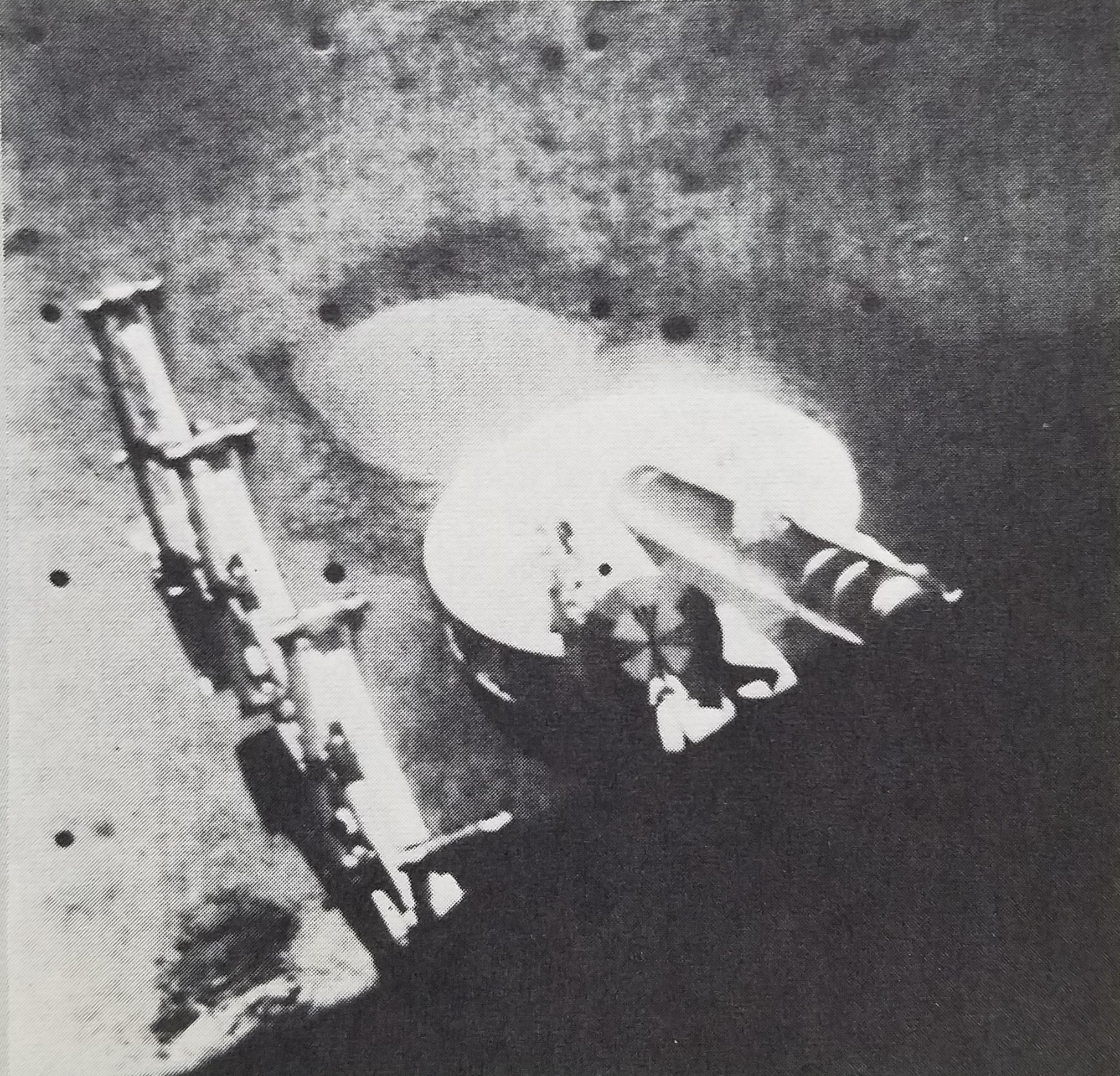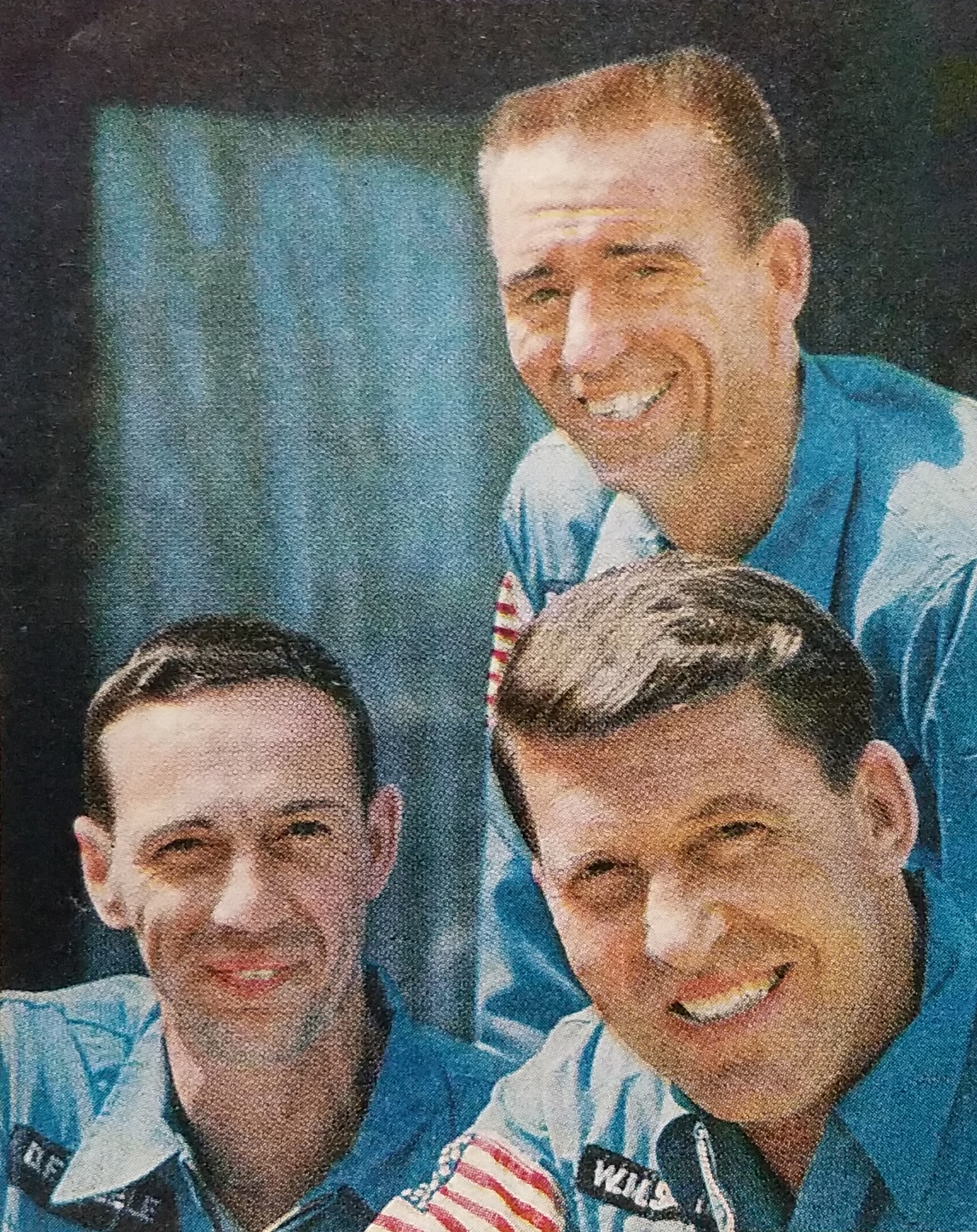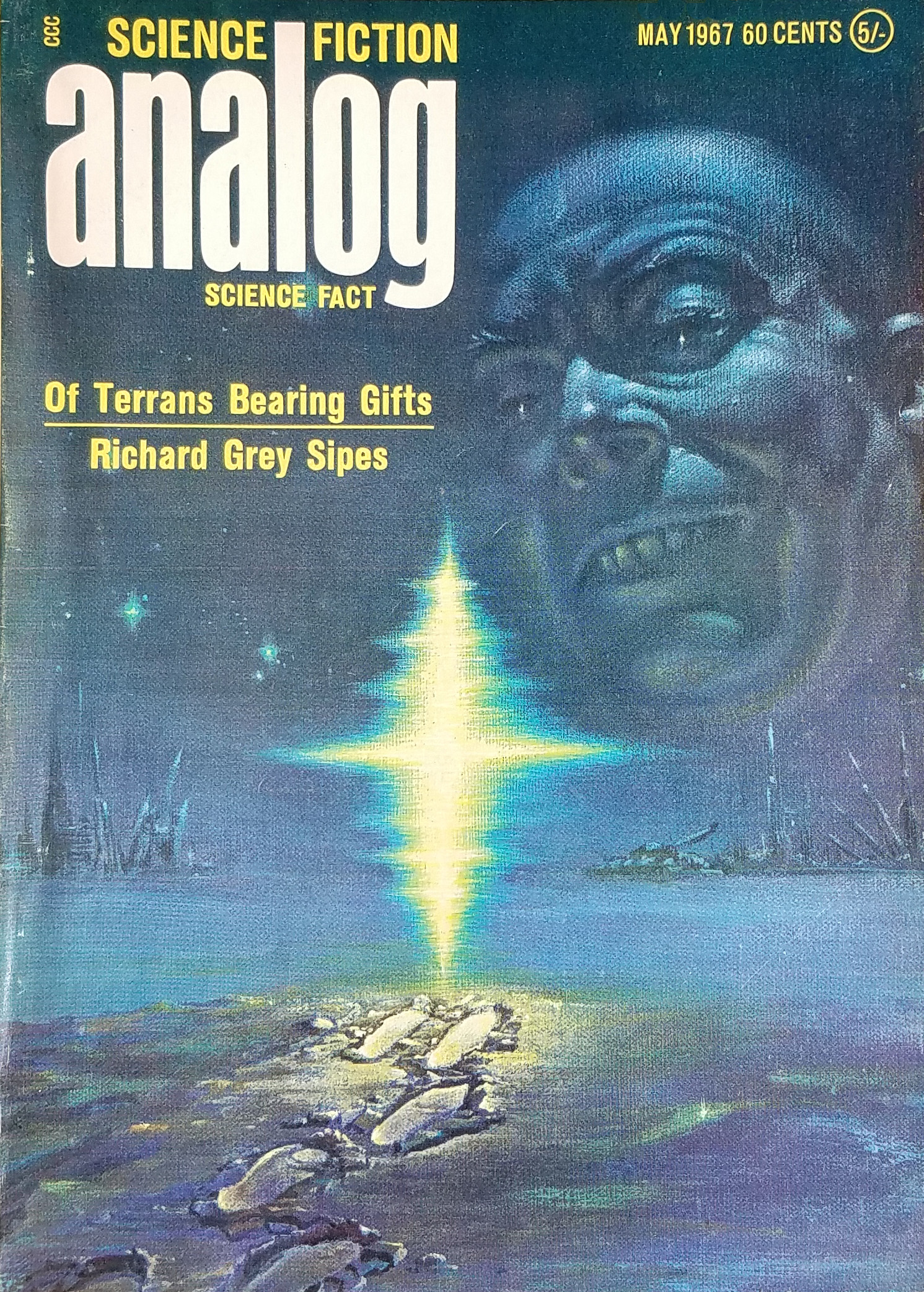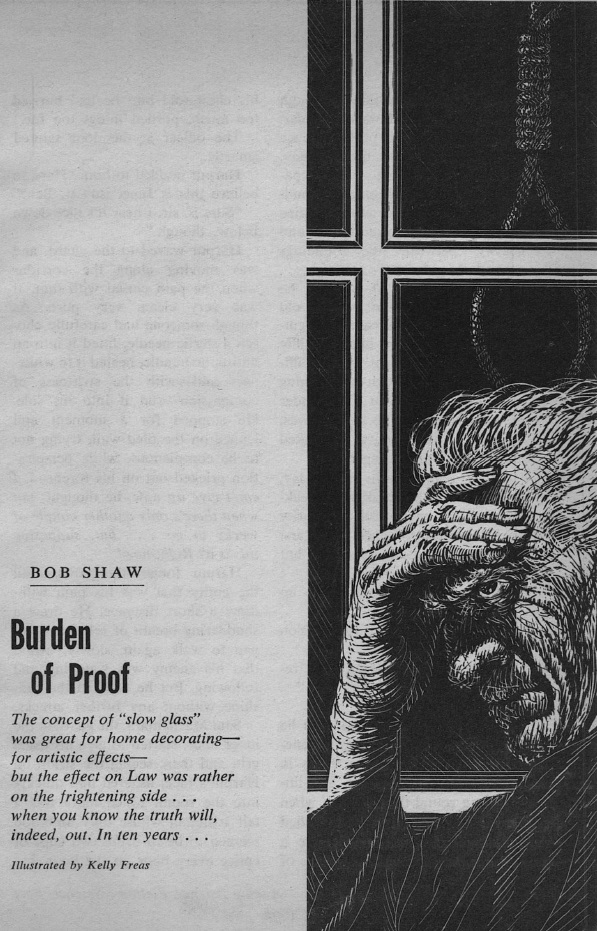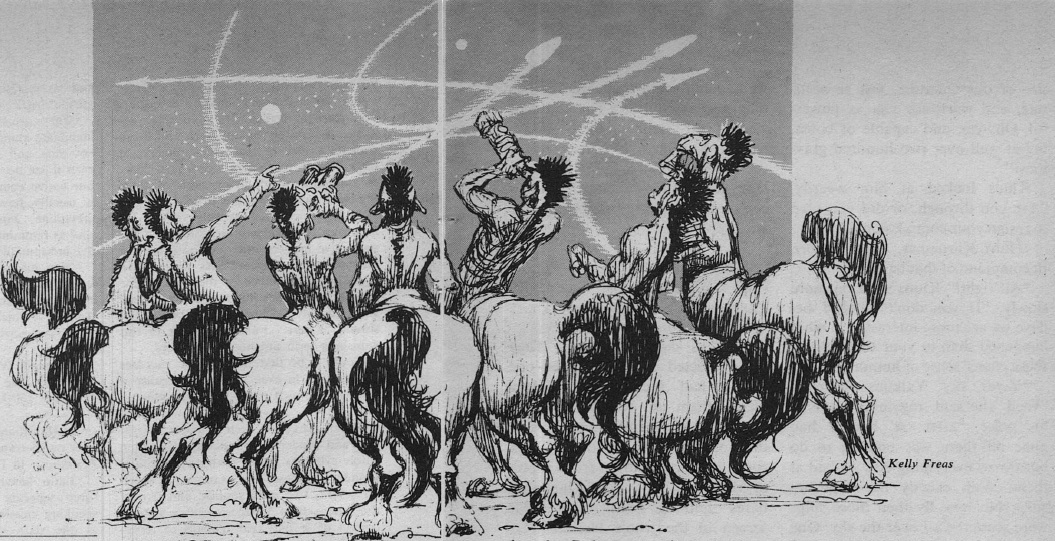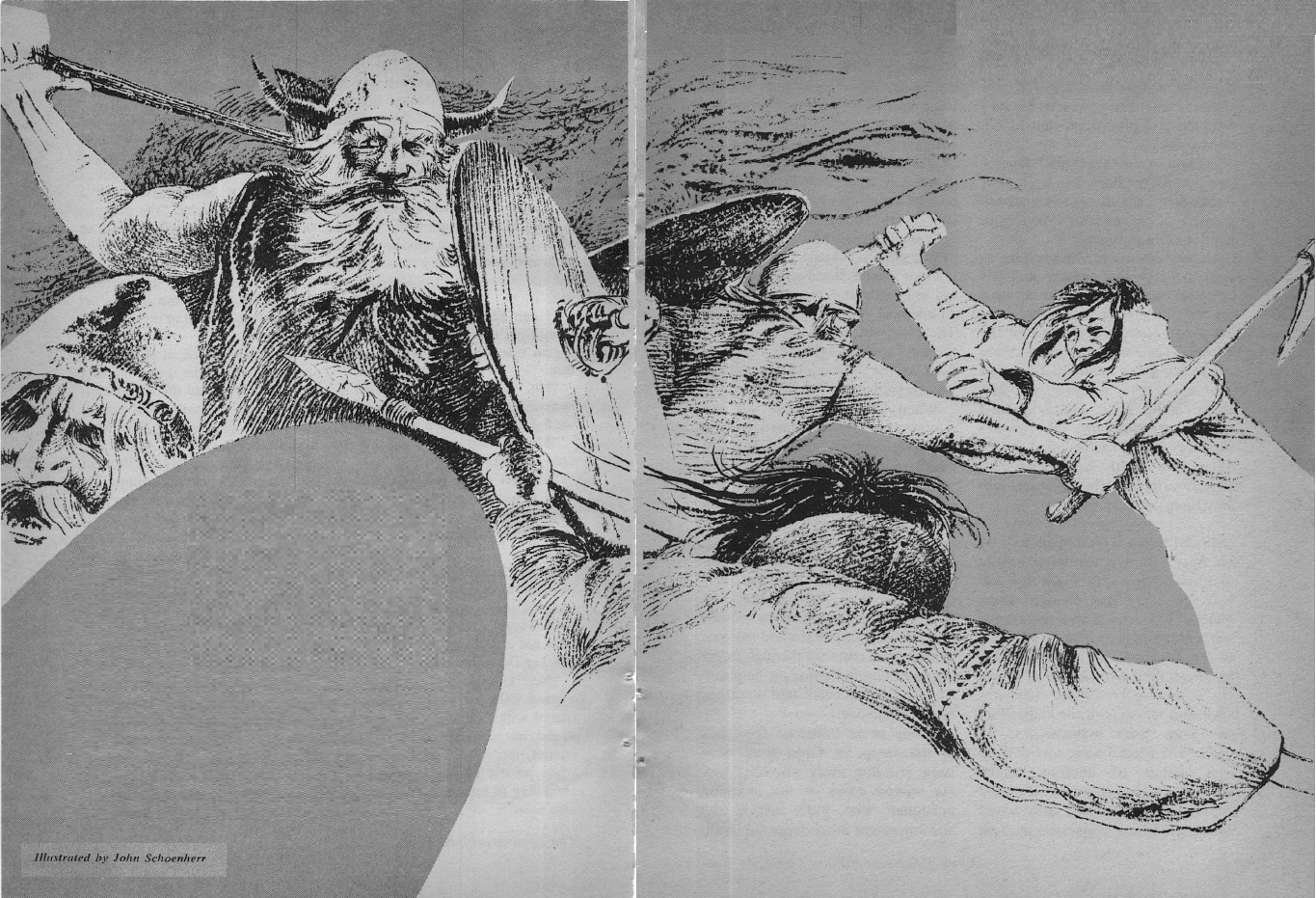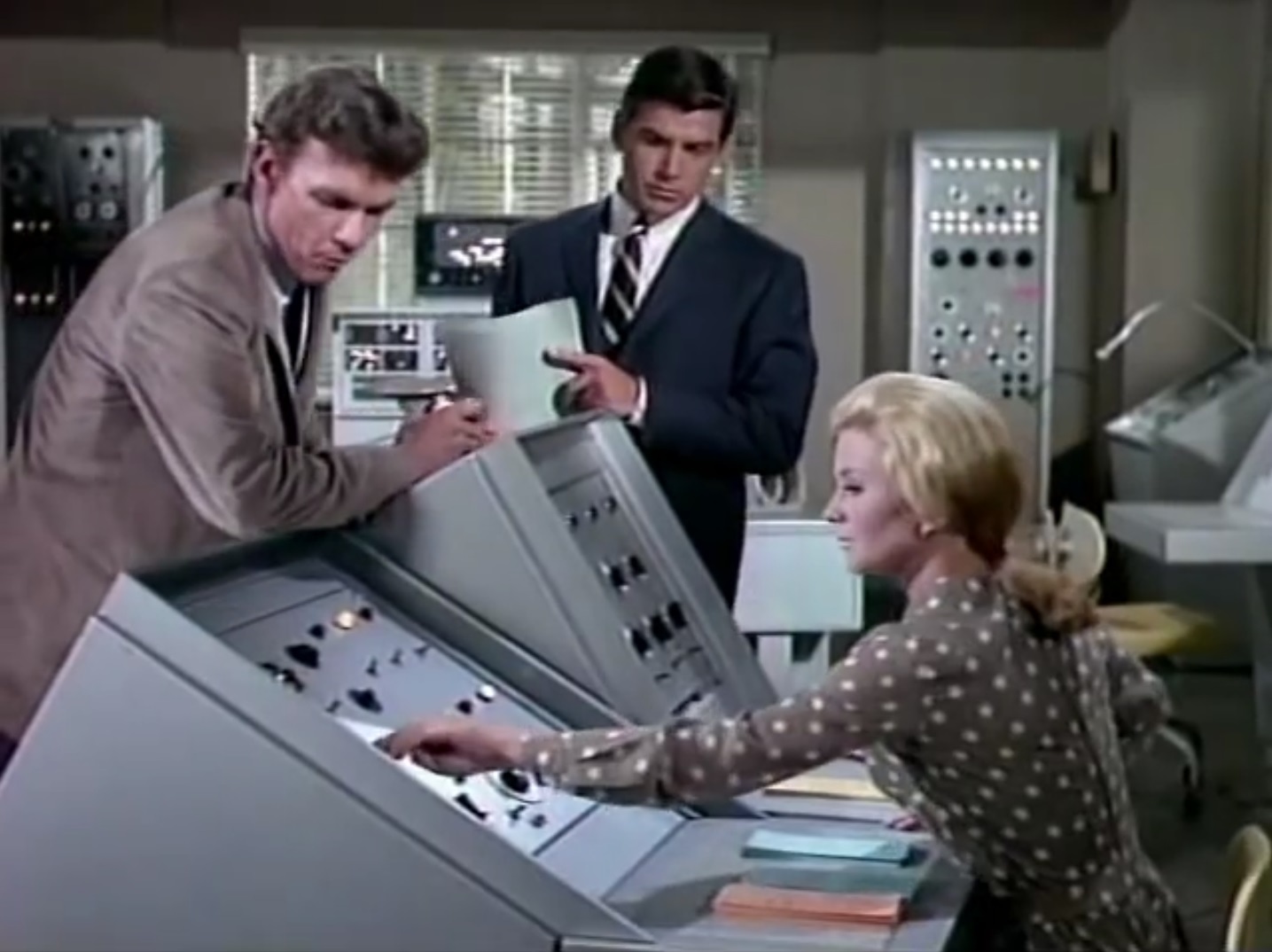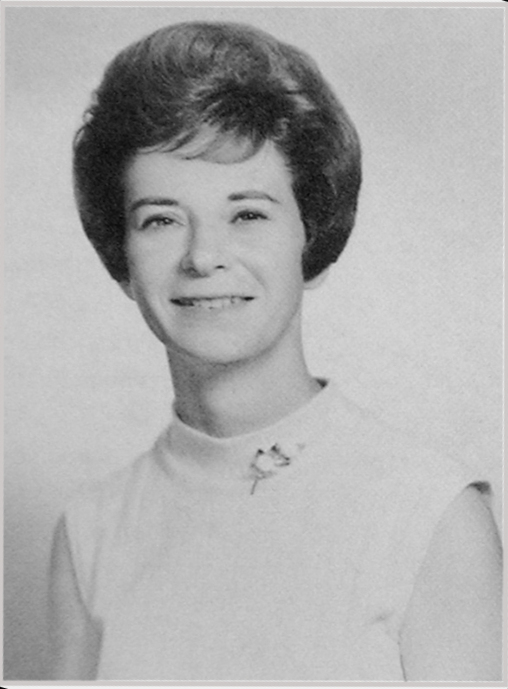
by Gideon Marcus
Too much
Last week, we watched the evening news with mounting dread and anxiety as President Johnson ordered 15,000 reservists into action in response to the seizure of the U.S.S. Pueblo by North Korea. The U.S.S. Enterprise was already in the Sea of Japan ready to initiate a retaliatory strike. It looked like the Cuban Missile Crisis all over again. Lorelei turned to me and worried that things couldn't possibly get any worse.

Then the North Vietnamese launched an all-out assault on seven provincial capitals in South Vietnam. Fighting reached the streets of Saigon, and the America embassy itself was overrun for six hours. The conflict is still raging. So much for the Tet holiday week of peace. So much for armistice overtures.

So, 1968 is already shaping up to be a scary year in the mundane world. Let's see how we're doing in the SFNal realm. The latest issue of Analog starts off strong, from its Kelly Freas cover, to Harrison's name on the masthead. But does it deliver on its promises?
Too little
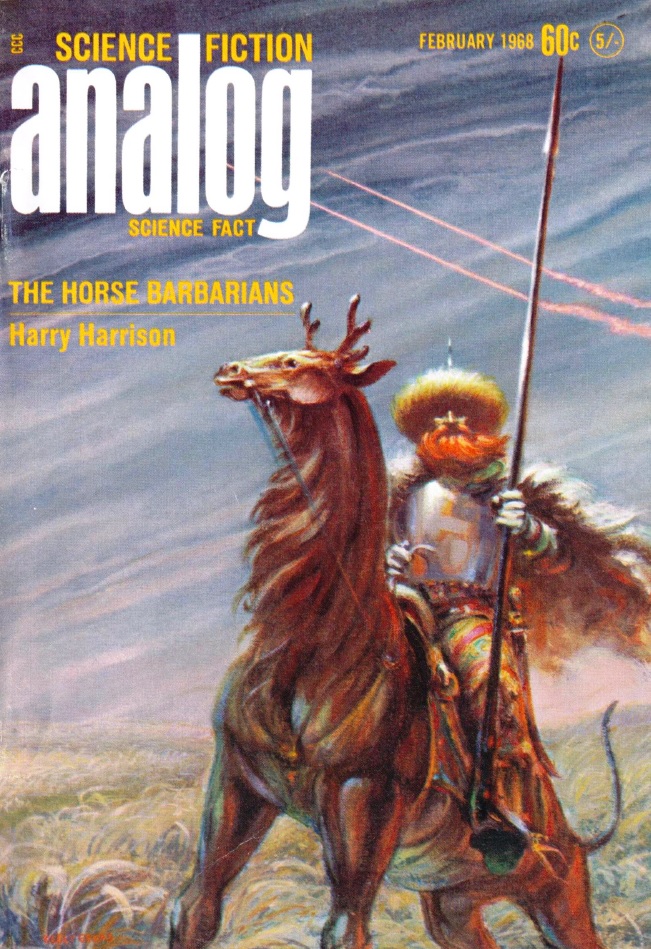
by Kelly Freas
The Horse Barbarians (Part 1 of 3), by Harry Harrison
Don't let the title or the cover throw you–this latest serial is, in fact, the third installment in Harrison's Deathworld series. In the brilliant first story, we are introduced to Jason dinAlt, a psychically adept gambler and roustabout who comes to Pyrrus, the most hostile planet in the galaxy. Using his ESP talents, as well as his fine brain, he deduces that the reason the world is so antagonistic to humans is due to a kind of psychic positive feedback loop: as the colonists came to regard the planet as their enemy, the planet's flora and fauna responded in kind. The key to living at peace with the world is a change in mindset, to work with the planet rather than try to conquer it. It was a lovely ecological message, predating Silent Spring by two years.
The second dinAlt story, The Ethical Engineer is a Deathworld story only in name, with dinAlt captured and taken to another world in Chapter One. This novel, more than any other, caused me to confuse Harry Harrison for Keith Laumer (as dinAlt and Retief are rather similar in nature and tone) everafter.
This third piece is a little more closely bound to the original. The premise: all of the city-dwellers of Pyrrus who could make peace with the planet have already left the original settlement for the countryside. What's left is the hard-core who cannot change their mindset. Eventually, the planet must defeat them.
Jason has a proposal that may appeal to this remainder. The planet Felicity has resisted all attempts at establishment of a mining colony. Specifically, the northern half of the planet's sole continent is peopled by savage horse barbarians who steadfastedly resist any attempt at civilization. dinAlt suggests that the Pyrrans form a planetary exploration and pacification company; after all, who in the galaxy could be tougher than a Pyrran? About 400 city-dwellers agree to the plan.
Upon landing on Felicity, Jason is immediately konked on the head and made a captive of Temuchin, leader of the dominant barbarian tribe. This chief has slowly gained the vassalage of all of the other tribes, cementing his control over the windswept northern steppes. dinAlt manages to escape, making a trek across the barren wastes. But the trip back to his ship, the Pugnacious, is only the beginning of his worries. In order to topple Temujin, Jason and his fellow Pyrrans will have to playact at being a new barbarian tribe, and subvert the chieftain from within…
The tone flipflops between light and deadly serious, and the horse barbarians are a thinly disguised retread of the Mongols (look in your encyclopedia for the birth name of Genghis Khan), though made redheads for some reason. That said, I read the whole thing in two quick sittings, and I'm enjoying it more than Engineer so far.
Four stars for this installment.
To Make a "Star Trek" by G. Harry Stine
You know our favorite TV SF show has made the big time when Analog makes it the topic of the nonfiction science article! Stine, a model rocket enthusiast, offers up a fascinating bit of background on the program, including praises of its implementation of technology, and some behind-the-scenes information that must have come straight from show-runner Roddenberry (indeed, this schematic of the Enterprise has been reprinted in current Trekzines.
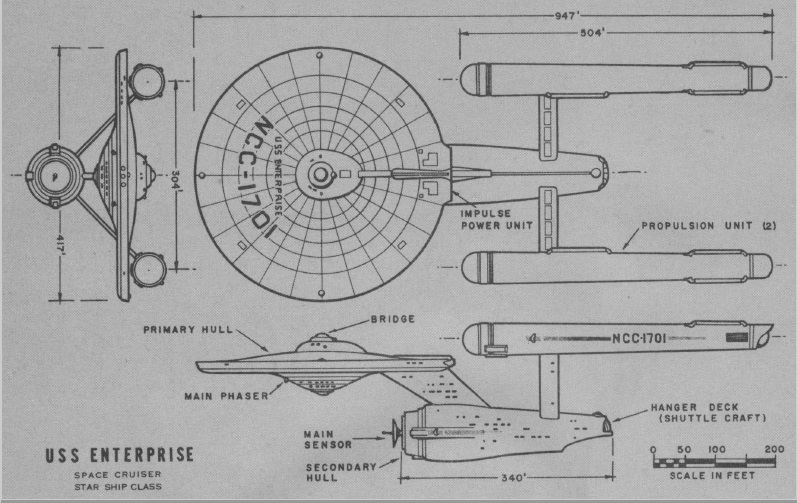
Four stars, and a must read for Kirk/Spock buffs.
"If the Sabot Fits … " by Leigh Richmond and Walt Richmond
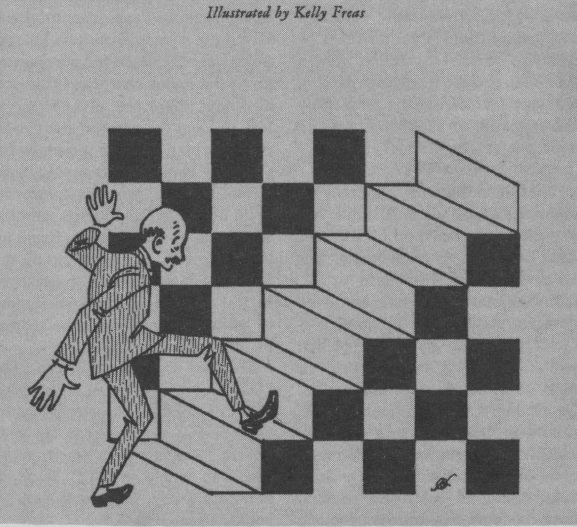
by Kelly Freas
The psychic man-and-wife author team returns with this mildly diverting piece. A series of catastrophic computer failures in a Midwest town coincides with a particular broadcast at a public education station. Could there be a connection?
I'm not sure if the science is sound, but it might be–Walt is an electrical engineer (Leigh, reportedly, just types his mental emanations, but I suspect she is actually the storytelling talent of the pair).
It's not bad. Three stars.
Peek! I See You! by Poul Anderson
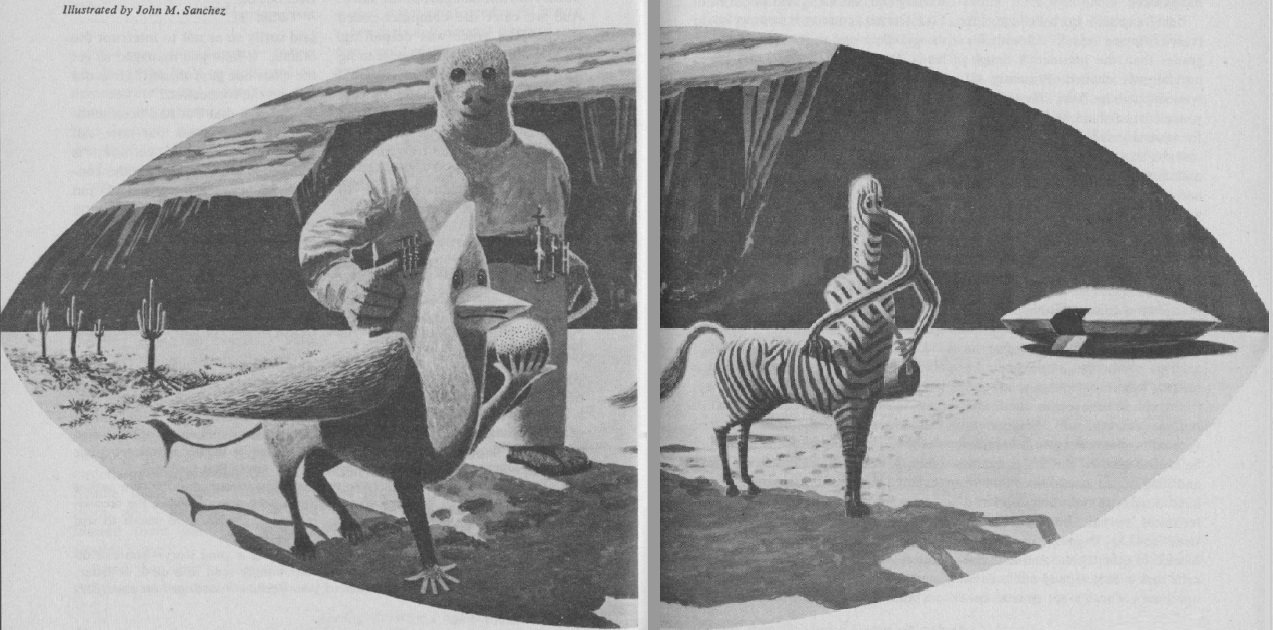
by John H. Sanchez
A freelance helicopter pilot spots a flying saucer out in the southwest desert. The aliens, who have already made contact with a local population, do their best to avoid widening their diplomatic contacts.
I appreciate the idea of alien relations with individual nations/groups as opposed to with planets as a whole. Science fiction writers tend to forget that planets are big places, and they can house more than one embassy/colony/climate.
But.
The story is twice as long as it needs to be, and Poul really doesn't do "light and funny" competently, certainly not in the same league as Laumer, Harrison, or Sheckley.
Two stars.
Dowsers Detect Enemy's Tunnels, by Hanson W. Baldwin

"American soldiers find tunnels in Vietnam, a country riddled with underground passageways. ONLY DOWSERS CAN BE THE REASON!"
Seriously, John? One star.
The God Pedlars, by Jack Wodhams

by Kelly Freas
The ugh continues. An interstellar corporation is selling computers to primitive tribesmen. The pitch: they are actually idols representing a great and wise god. These "gods" tell the indigenes how to live their lives, build technology, etc. Of course, it's all for the good of the natives.
In addition to being a rather specious premise, this isn't really a story. It's a mouthpiece and a straw man having a conversation such that the point is beaten into the reader with a mallet.
Editor Campbell would give this story five stars. I give it one.
Optimum Pass, by W. Macfarlane
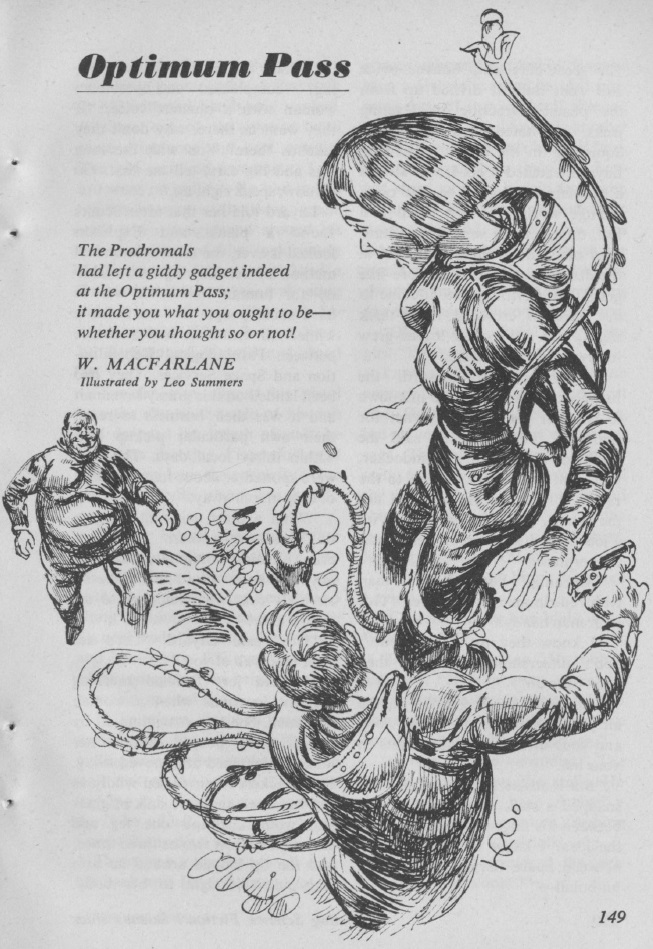
by Leo Summers
Last up, a sequel to Free Vacation, in which Layard and his fat partner (he never gets a name, but his girth is an important aspect of his character) manage to get themselves thrown in the pokey again such that they can get another free trip to an alien world. Their official mission is to tough out 30 days to determine the suitability of the planet for colonization. Their personal mission to look for evidence of "The Prodromals", the original galactic civilization.
More light fun, albeit a bit less coherent than the last tale. Still, three stars.
Unbalanced scale
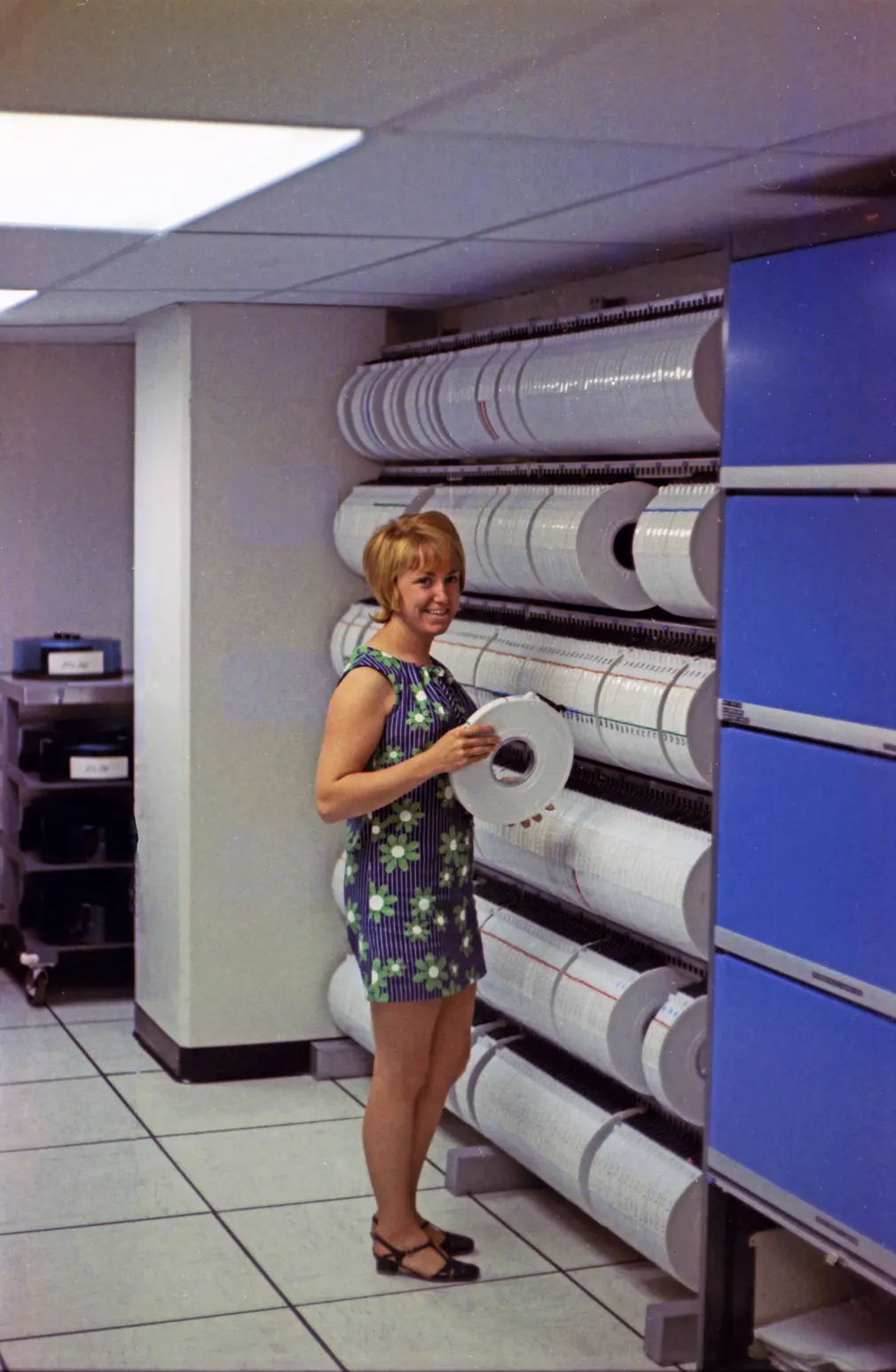
Despite the auspicious beginning, this month's issue of Analog finished at 2.7 stars, making it the least of the February 1968 magazines. Even Amazing scored slightly higher (still 2.7 when rounded), followed by IF (2.8), Fantasy & Science Fiction (3.1), New Worlds (3.3), and Galaxy (a slightly higher 3.3)
It was actually a good month for good fiction: out of six magazines released, one could fill two, possibly three with exceptional (four and five star) stuff. Women, on the other hand, continue to be underrepresented, with just 7% of published new fiction.
So, while Analog was a mixed blessing this month, all in all, the pages of the digests made for much more pleasant reading than the newspapers. Would that we could have good news in both. I guess we'll see how February fares. It is my birthday month; surely that counts for something!


![[January 31, 1968] Too much and too little (February 1968 <i>Analog</i>)](https://galacticjourney.org/wp-content/uploads/2023/01/680131cover-651x372.jpg)

![[December 31, 1967] Surprise, surprise! (January 1968 <i>Analog</i>)](https://galacticjourney.org/wp-content/uploads/2022/12/671231cover-669x372.jpg)









![[November 30, 1967] One door closes… (December 1967 <i>Analog</i> and Australia joins the Space Race!)](https://galacticjourney.org/wp-content/uploads/2022/11/671130cover-672x372.jpg)
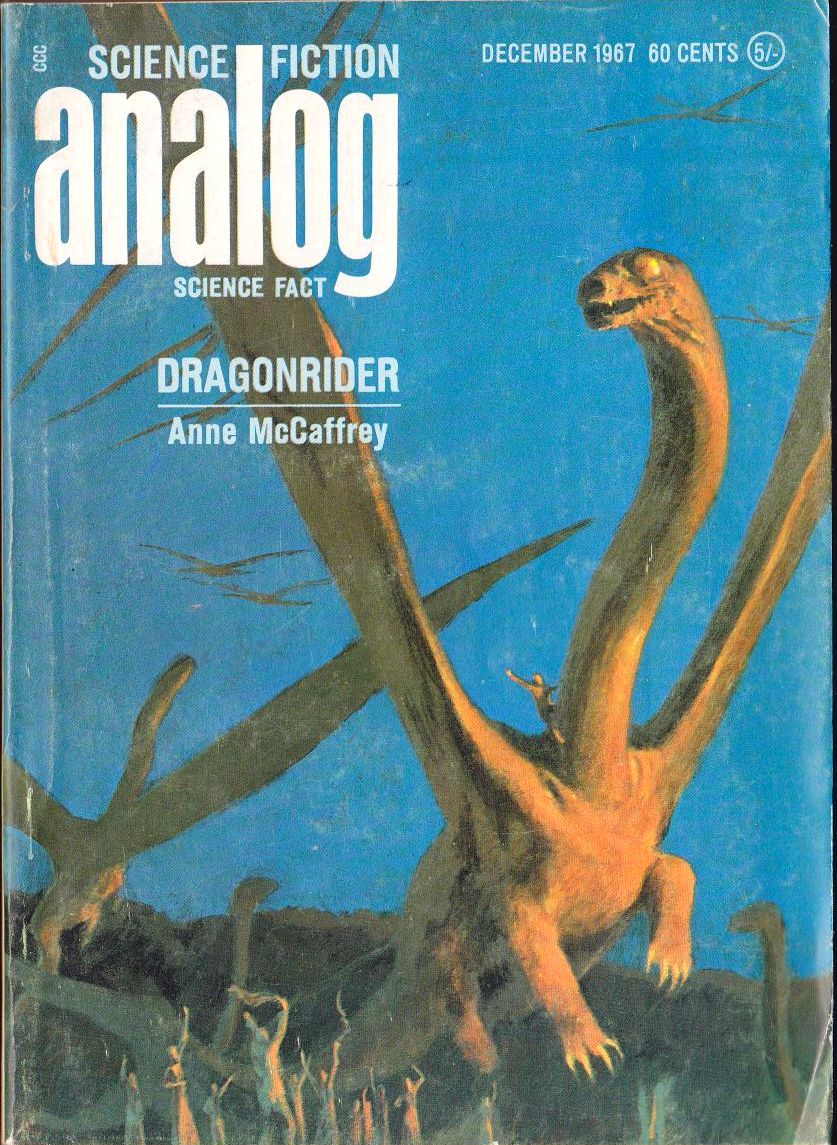

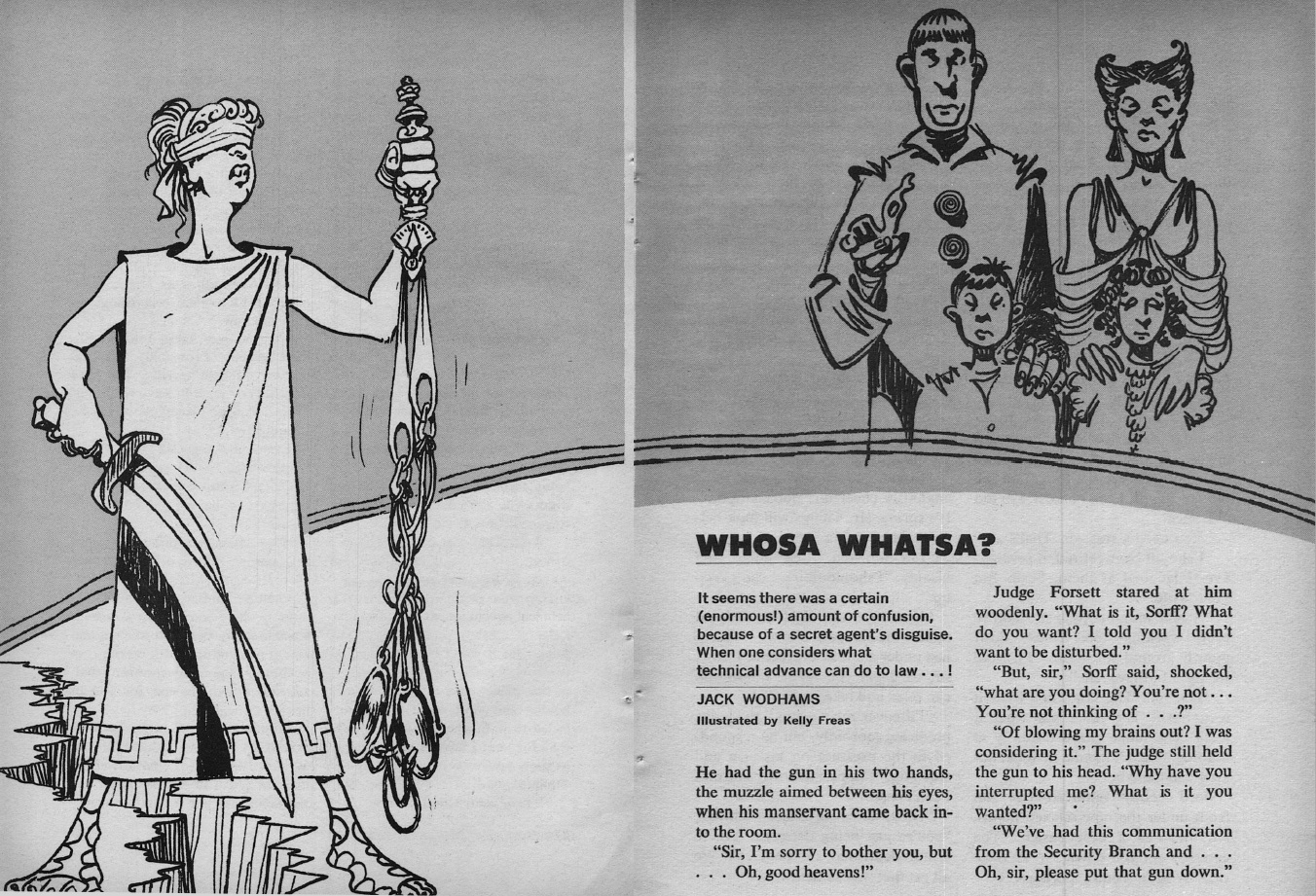

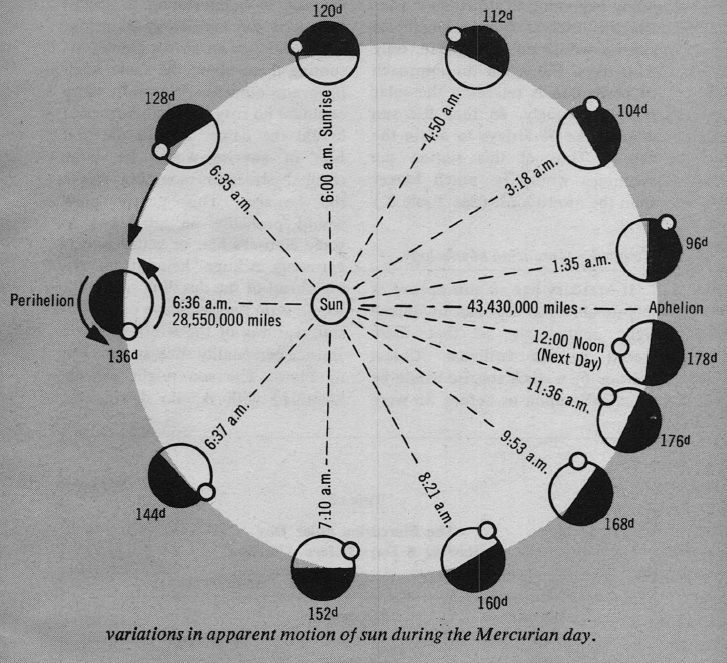

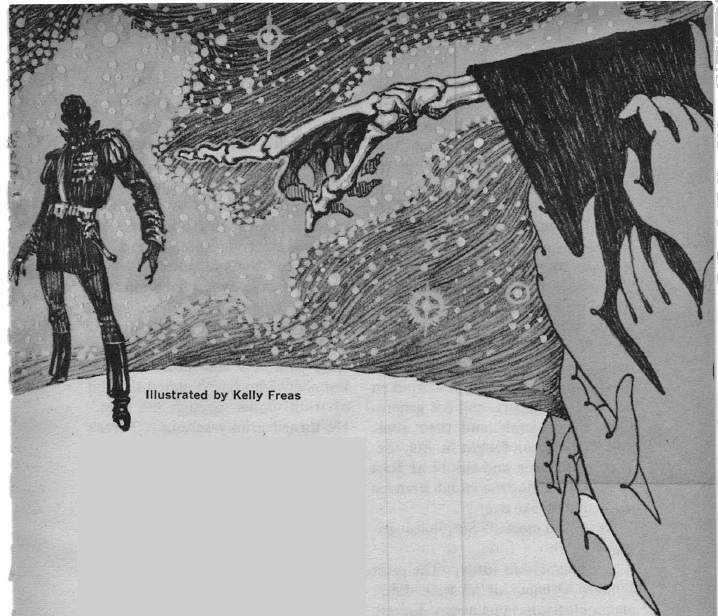


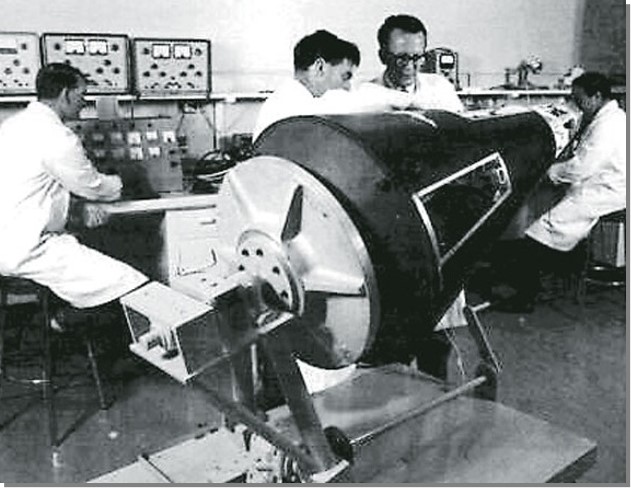


![[October 31, 1967] Same ol' (November 1967 <i>Analog</i>)](https://galacticjourney.org/wp-content/uploads/2022/10/671031cover-672x372.jpg)


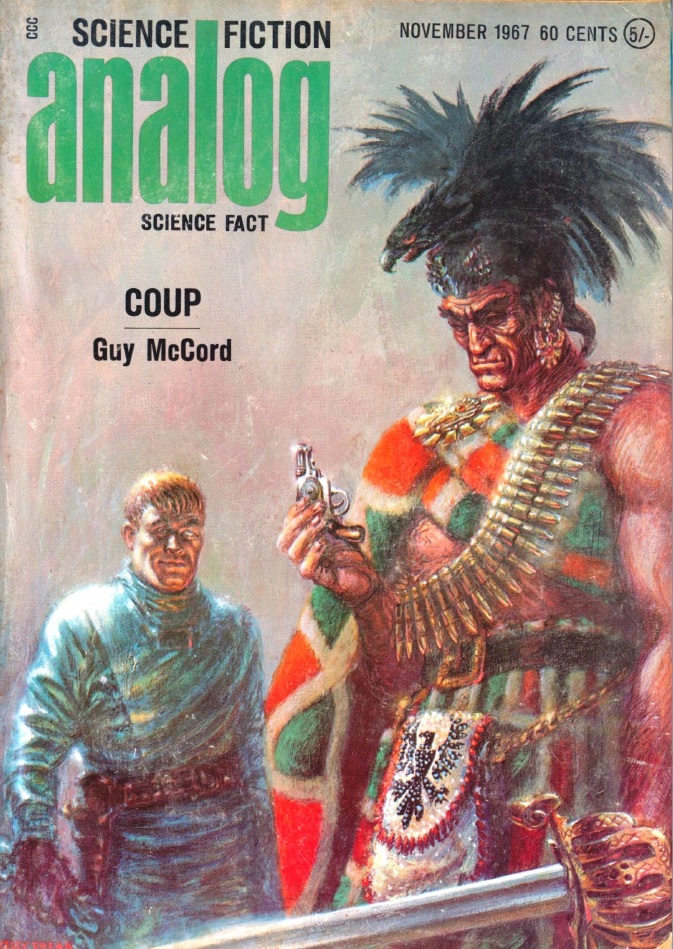
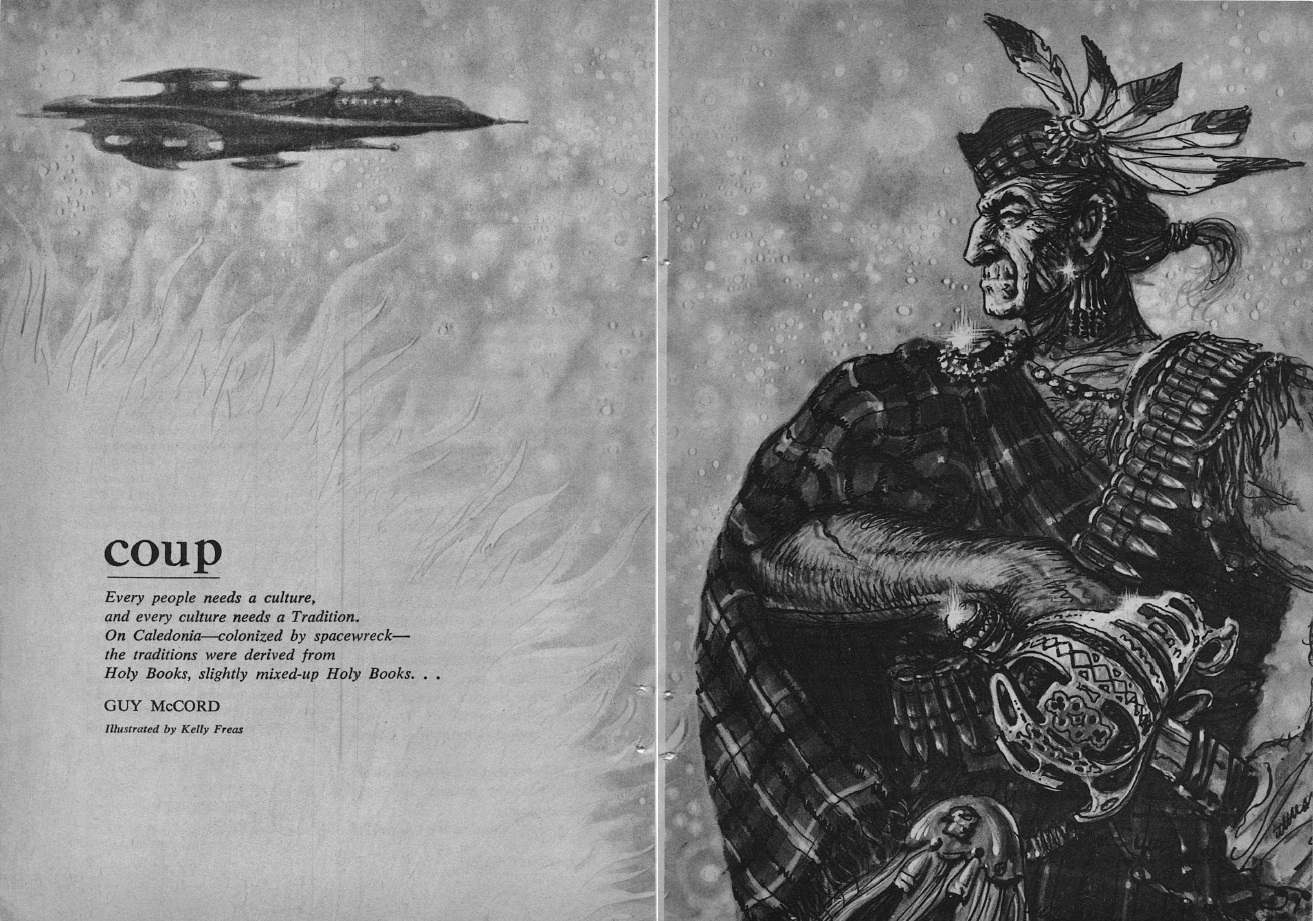
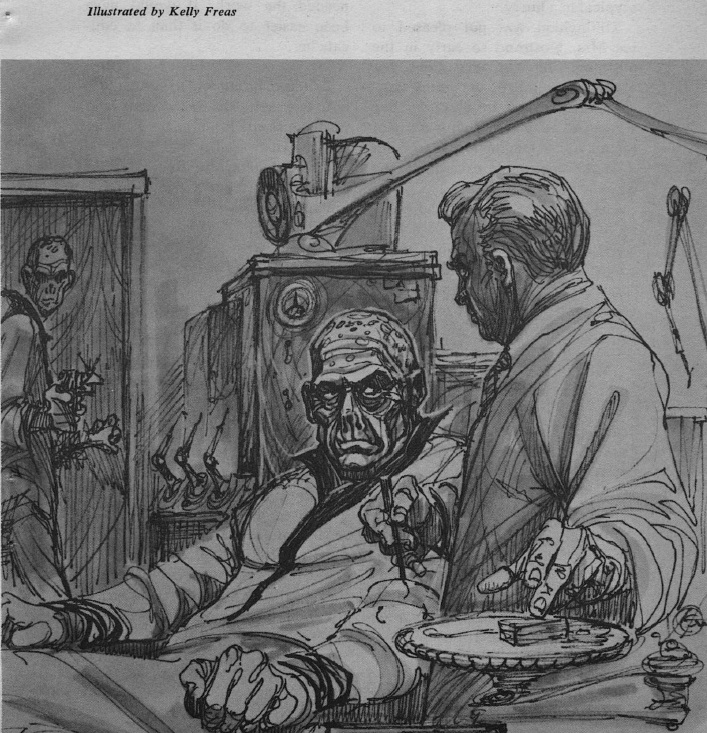
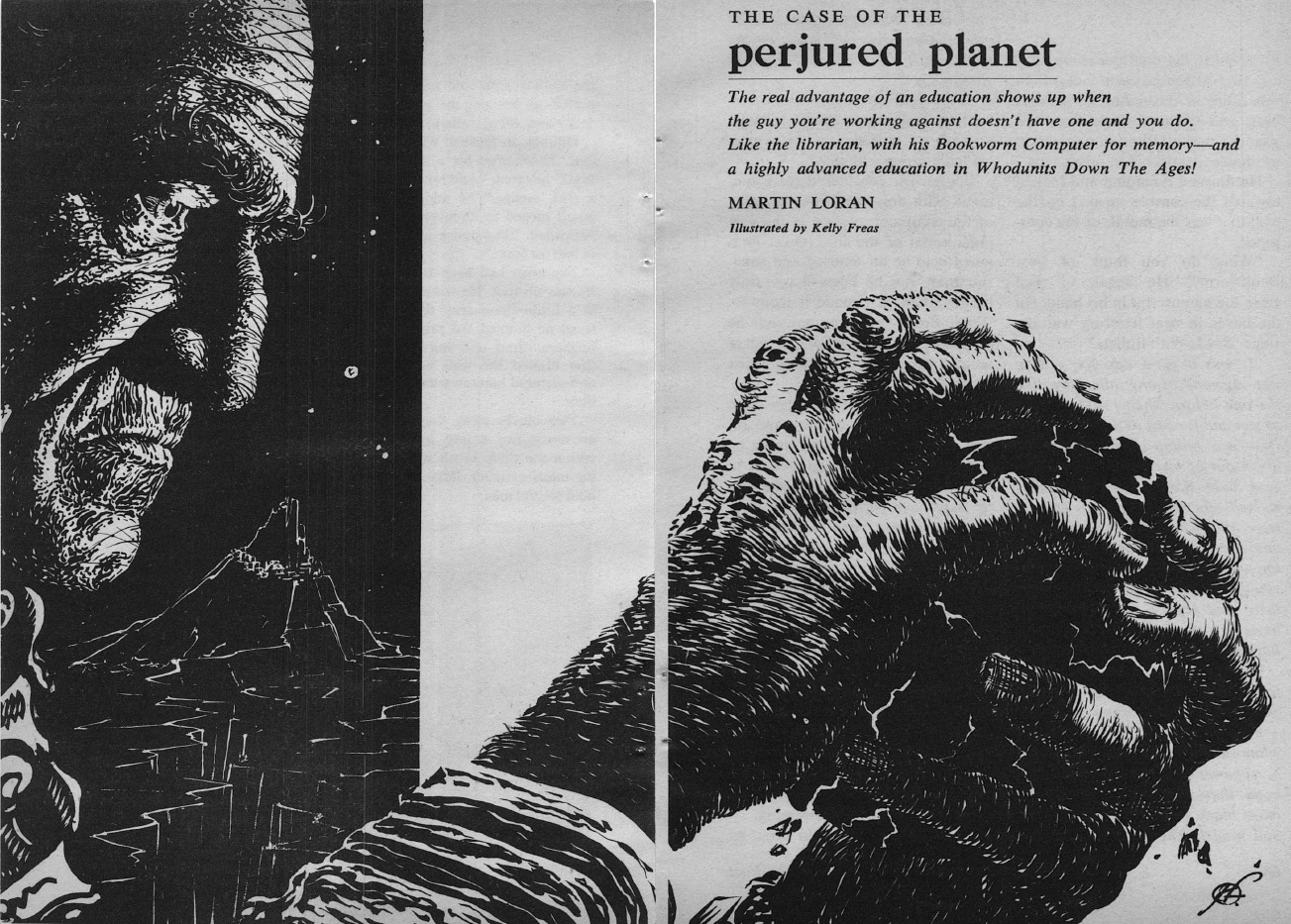


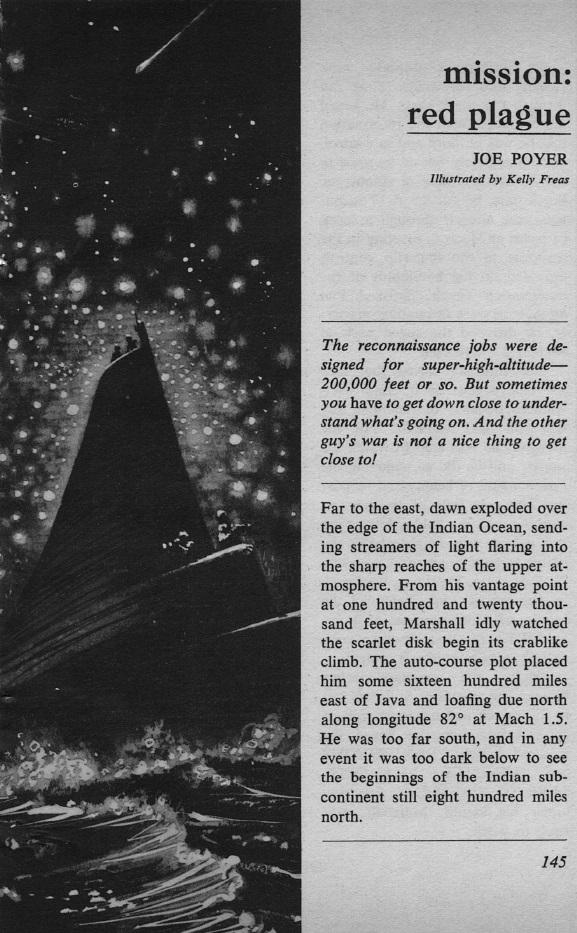

![[September 30, 1967] Ain't that good news! (October 1967 <i>Analog</i>)](https://galacticjourney.org/wp-content/uploads/2022/09/670930cover-672x372.jpg)











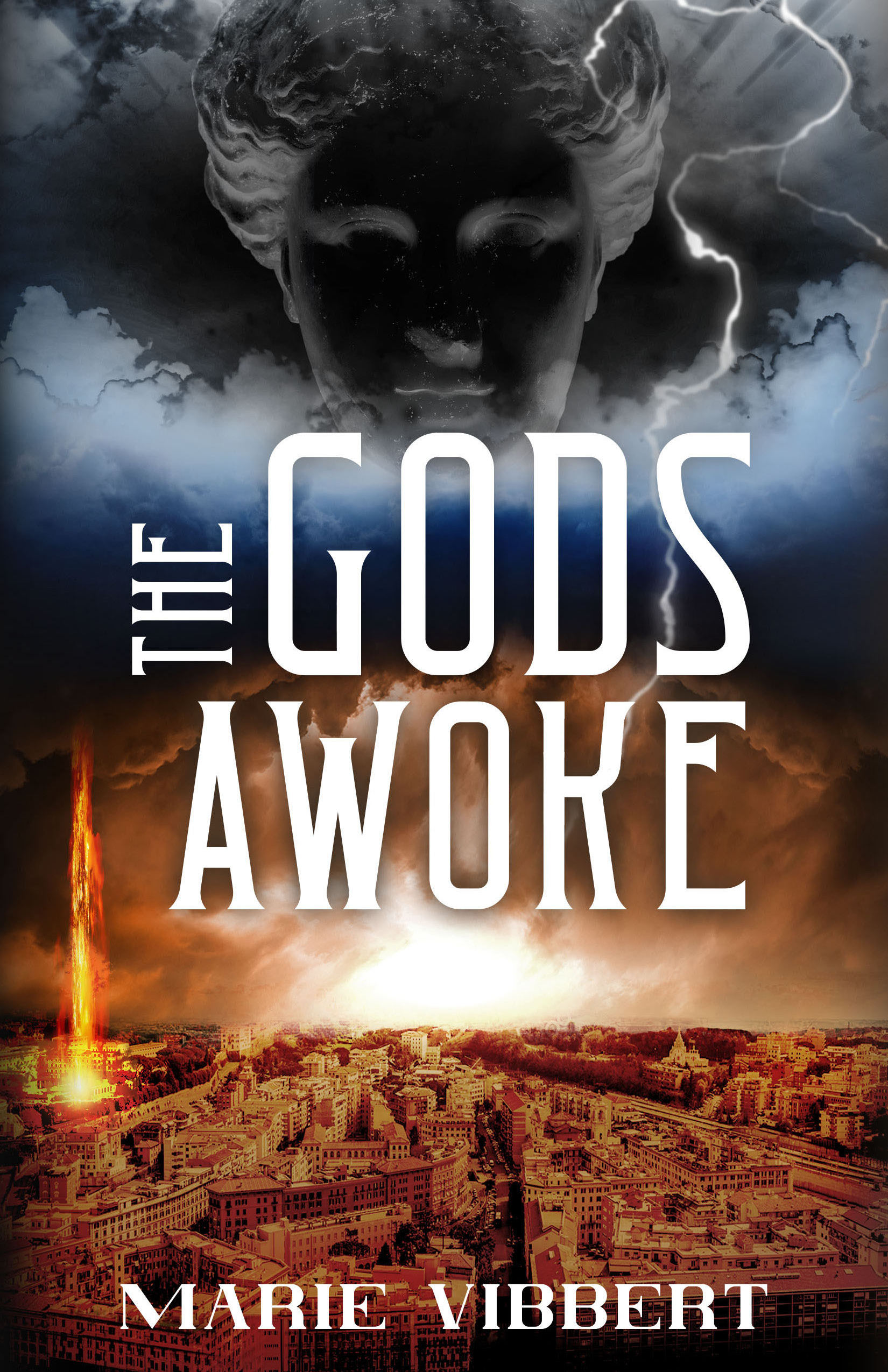
![[August 31, 1967] I wouldn't send a knight out on a dog like this… (September 1967 <i>Analog</i>)](https://galacticjourney.org/wp-content/uploads/2022/08/670831cover-672x372.jpg)



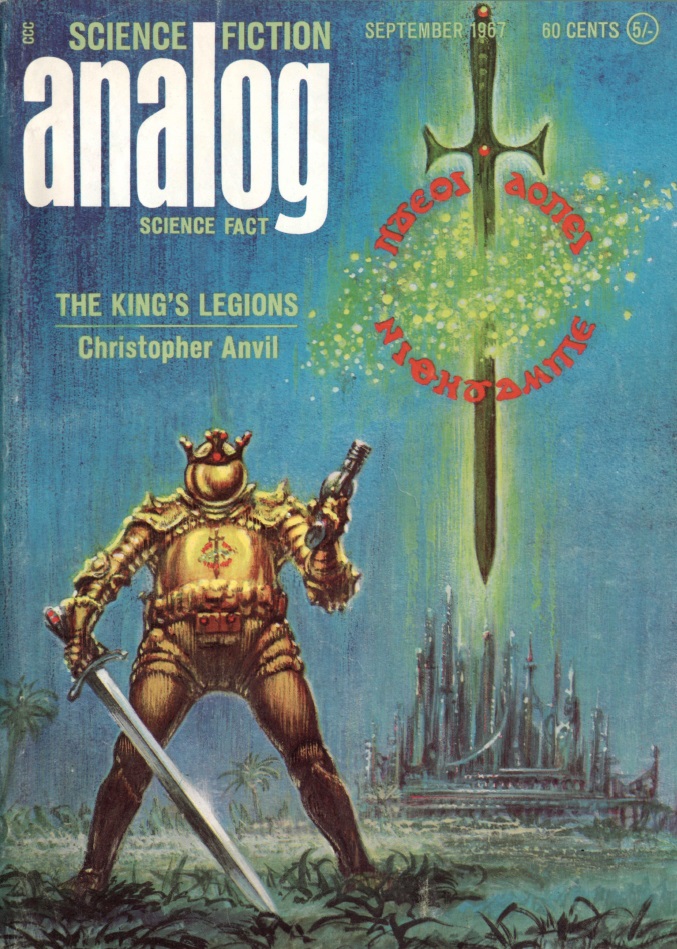
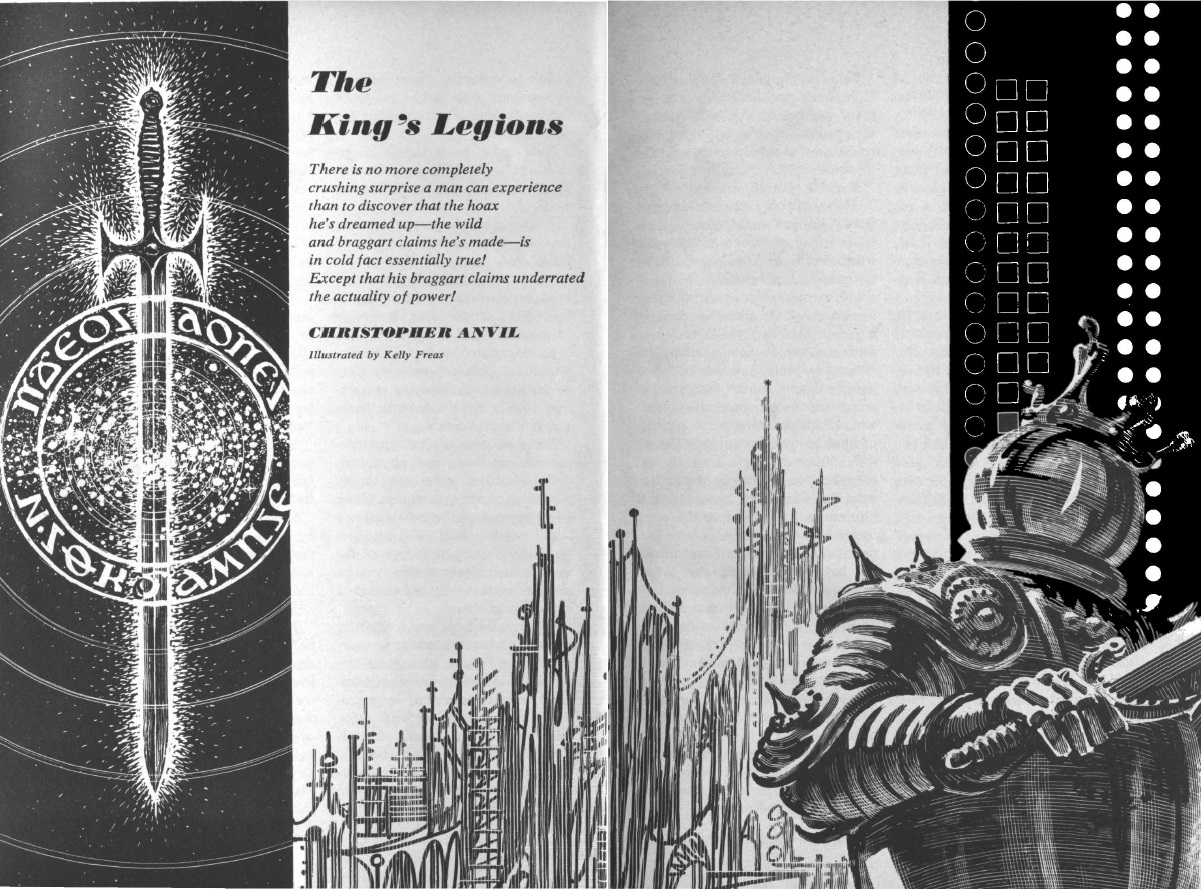
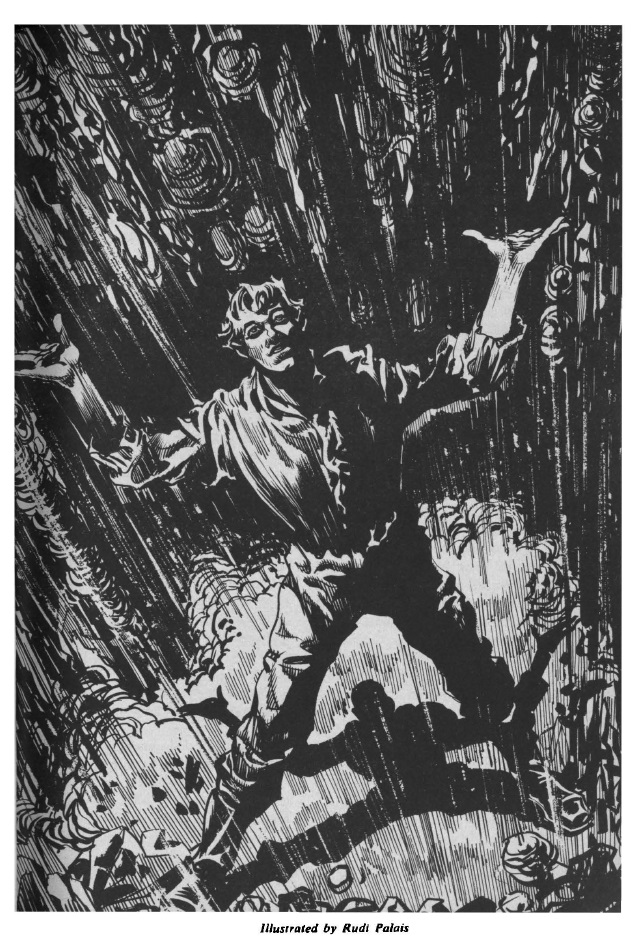
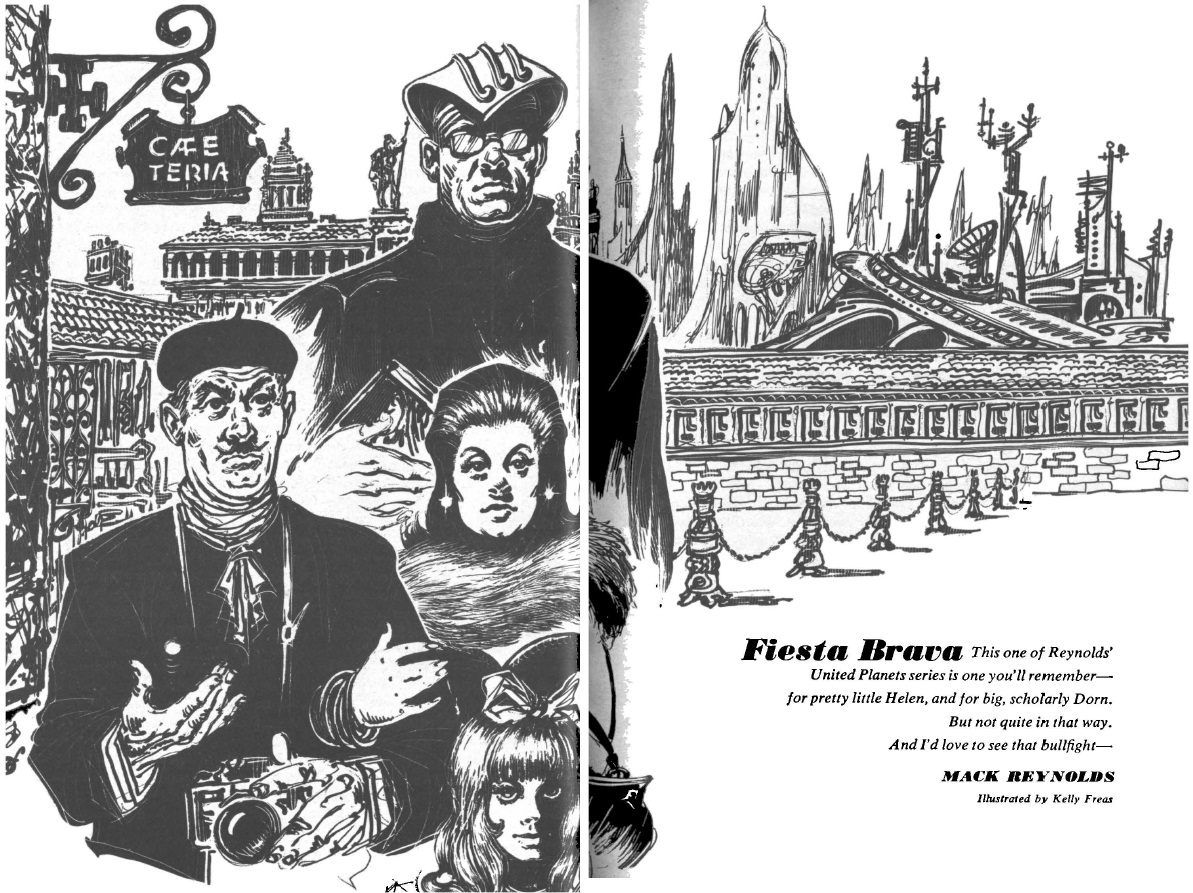
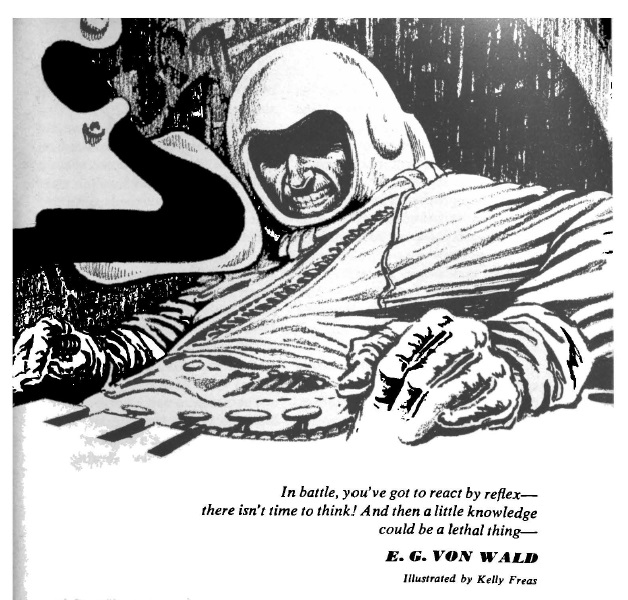
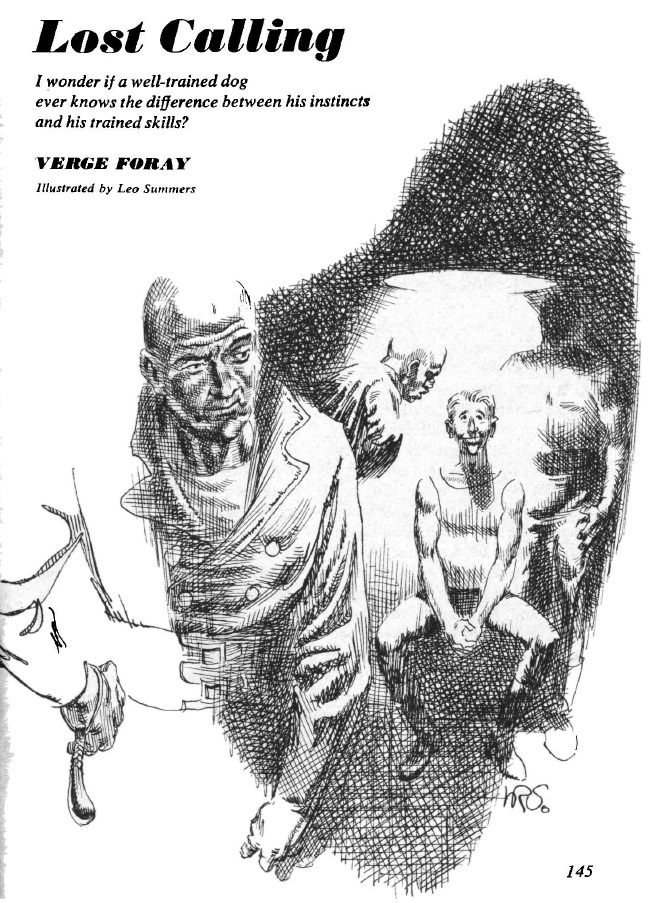
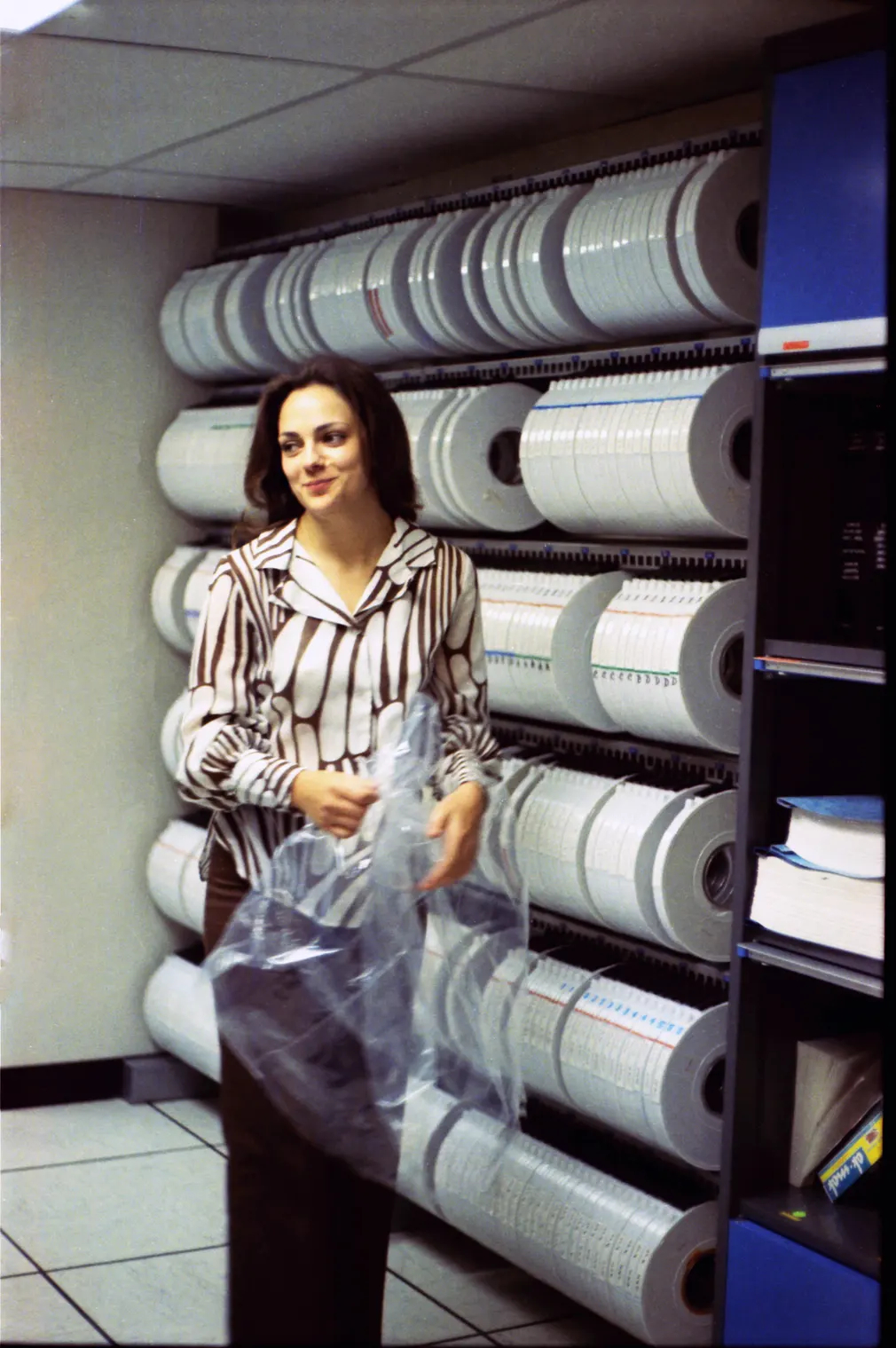
![[July 31, 1967] Canceling waves (August 1967 <i>Analog</i>)](https://galacticjourney.org/wp-content/uploads/2022/07/670731cover-672x372.jpg)
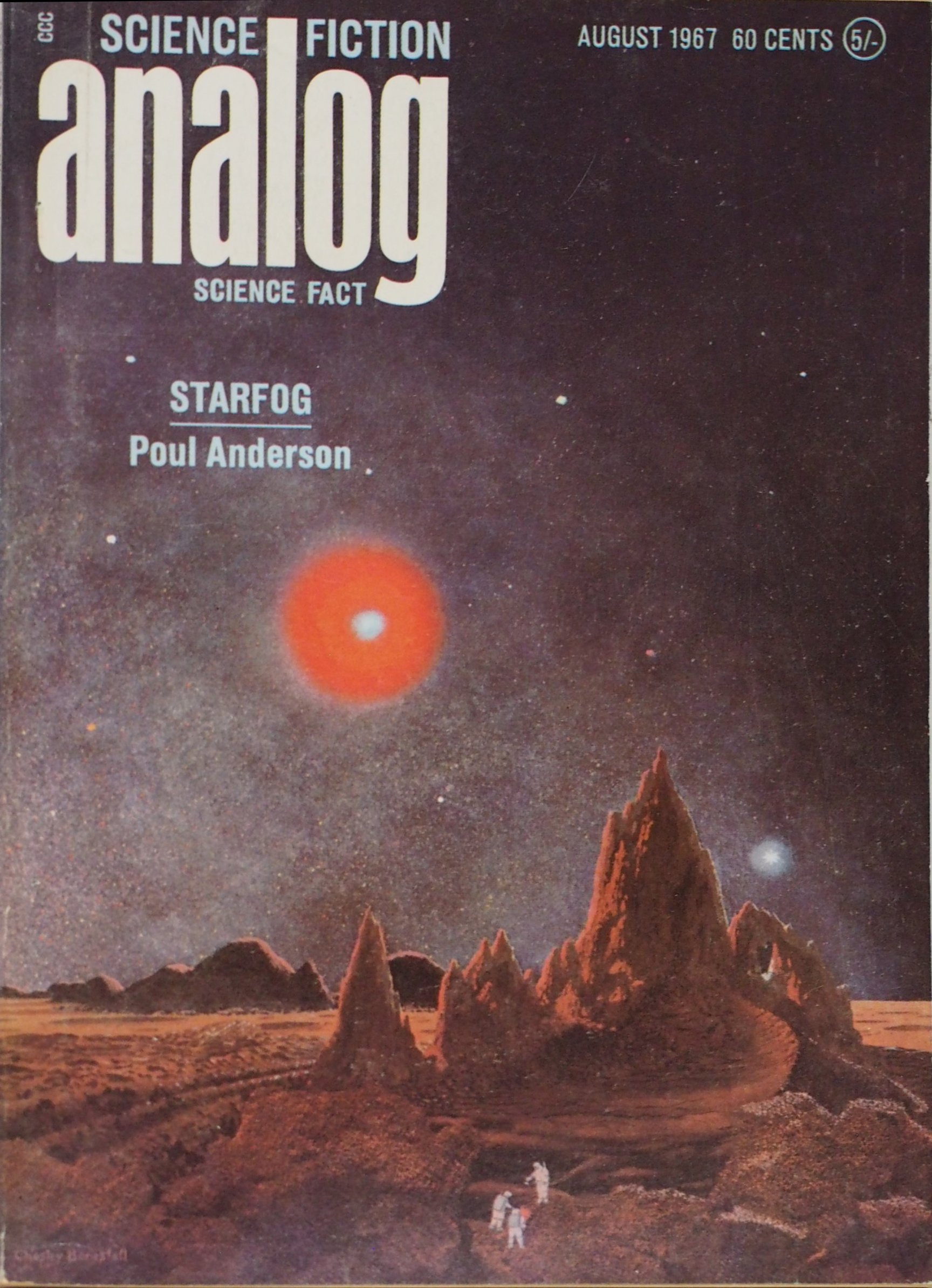

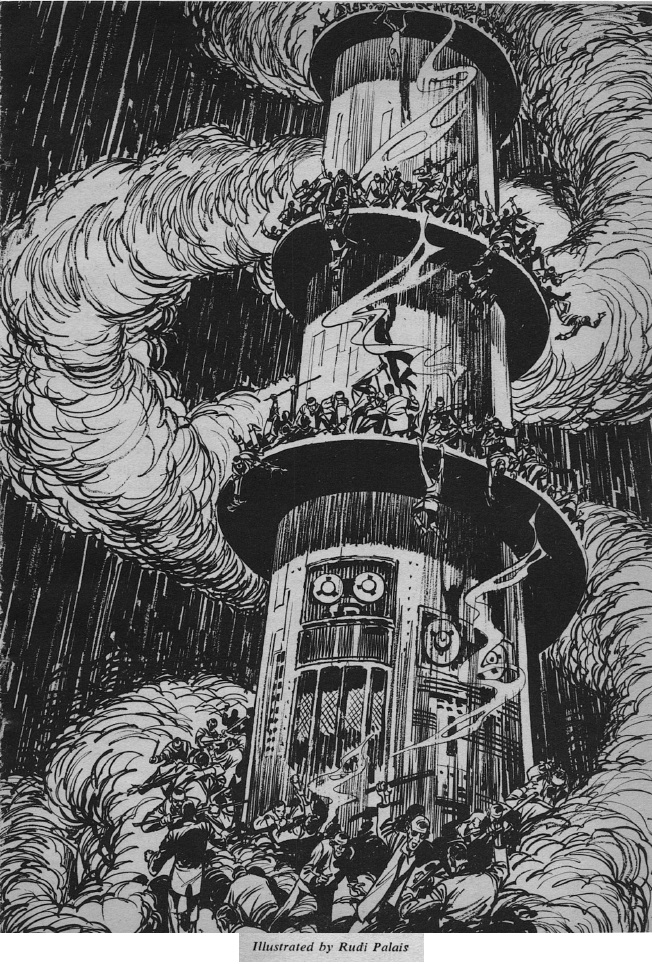
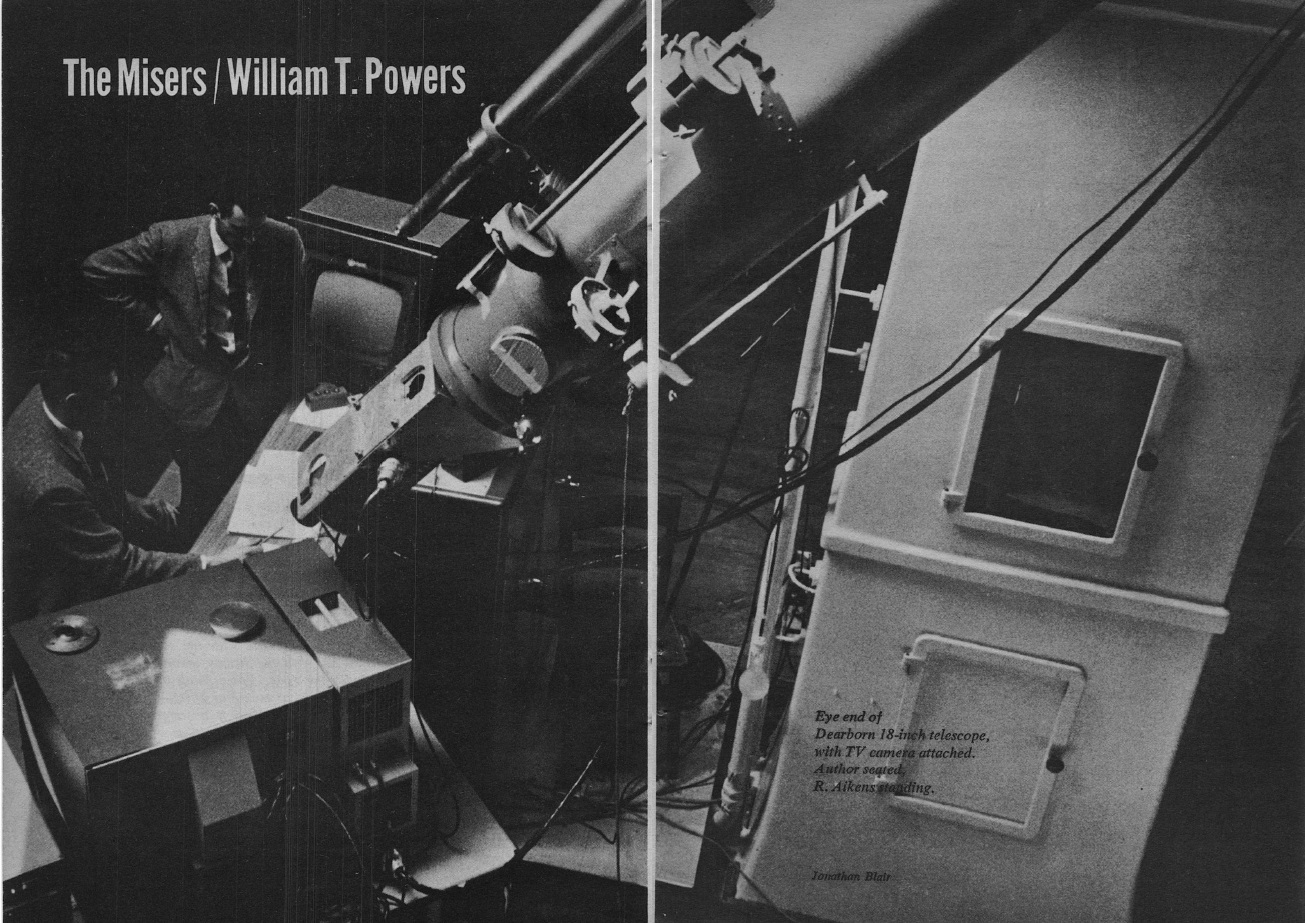
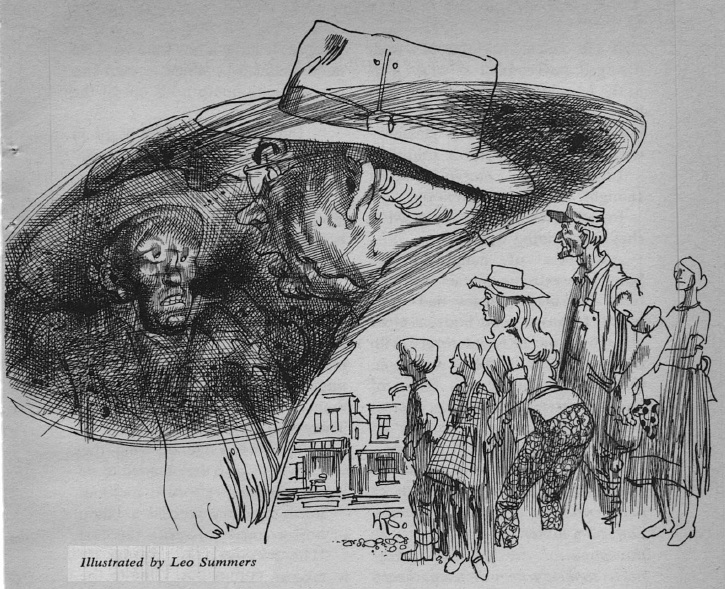

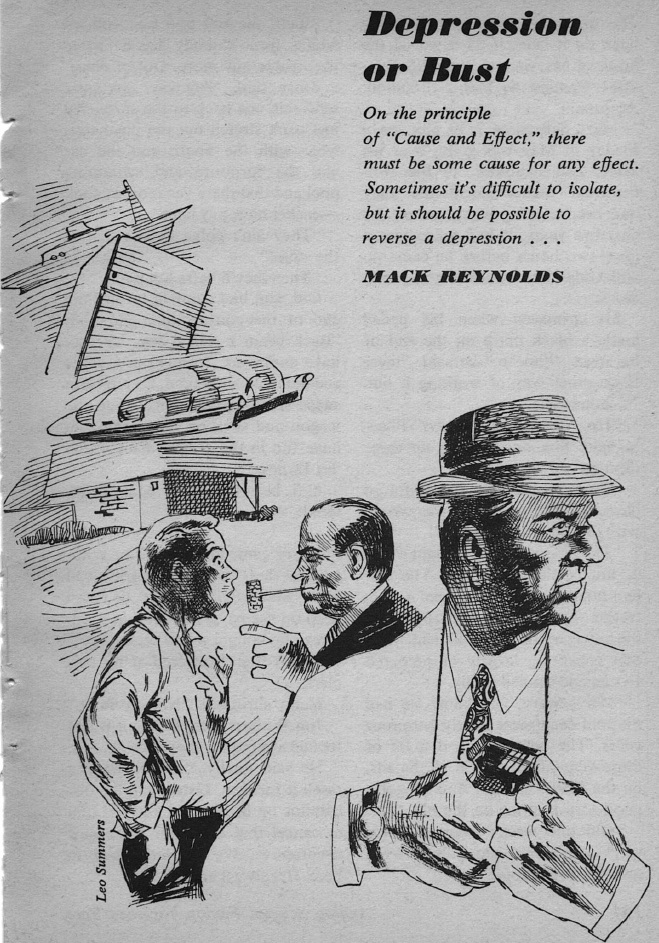

![[June 30, 1967] Bad trip (July 1967 <i>Analog</i>)](https://galacticjourney.org/wp-content/uploads/2022/06/670630cover-672x372.jpg)



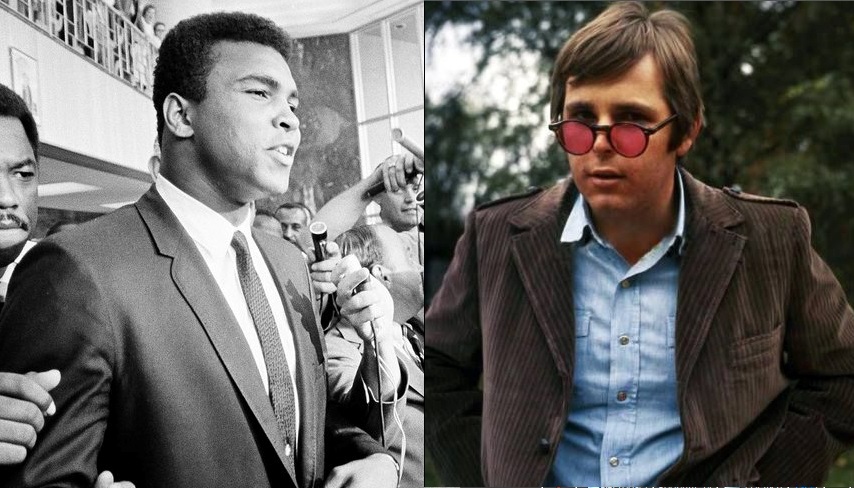
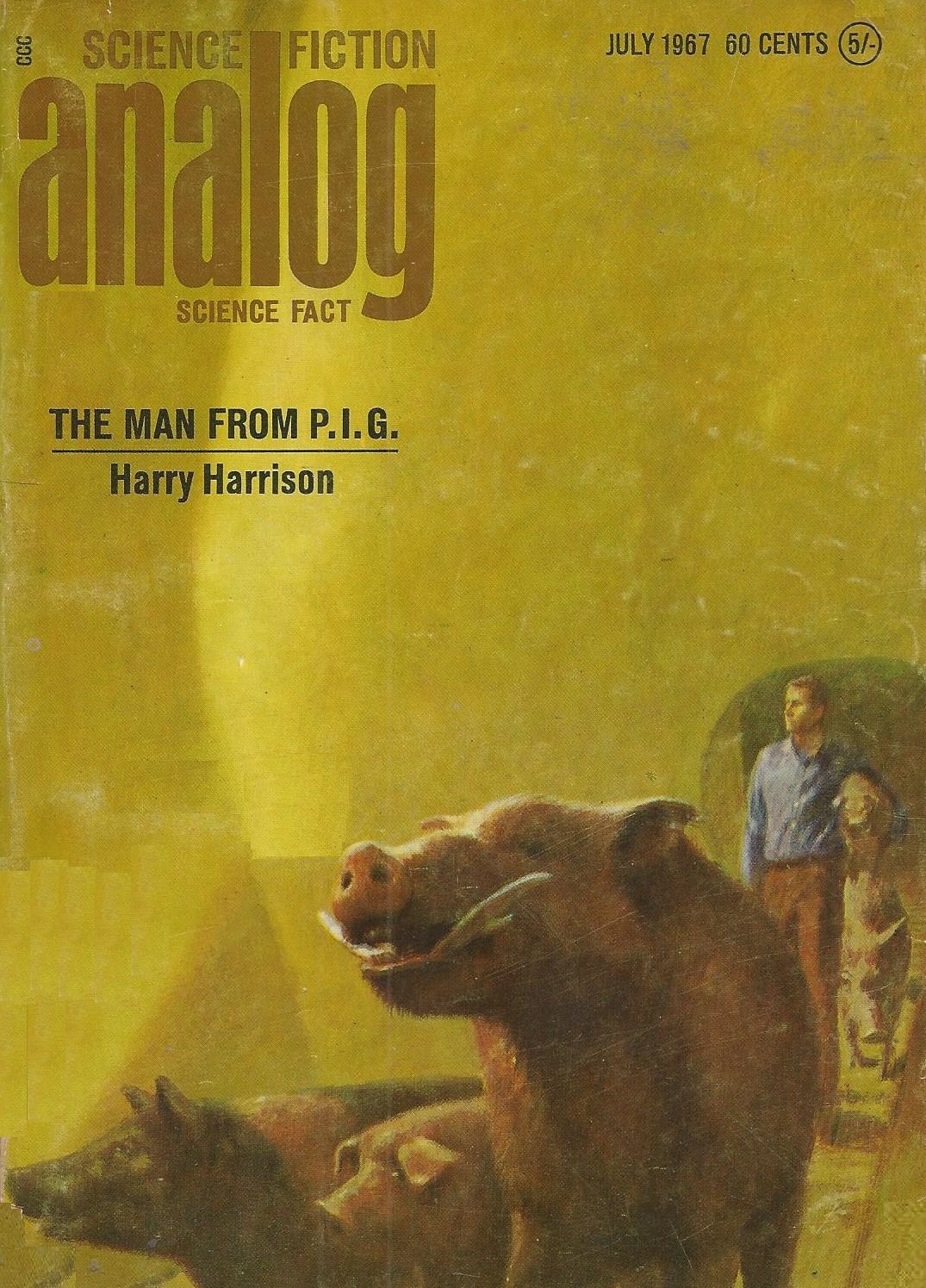

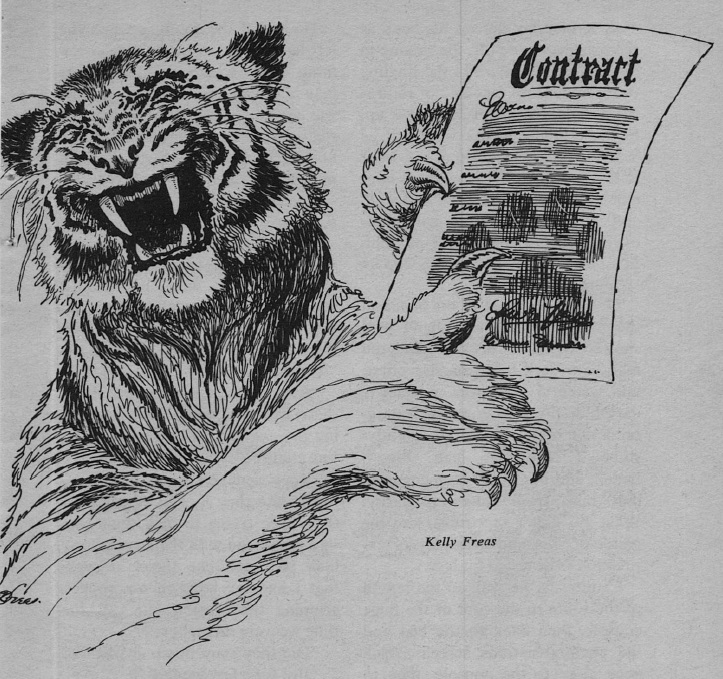



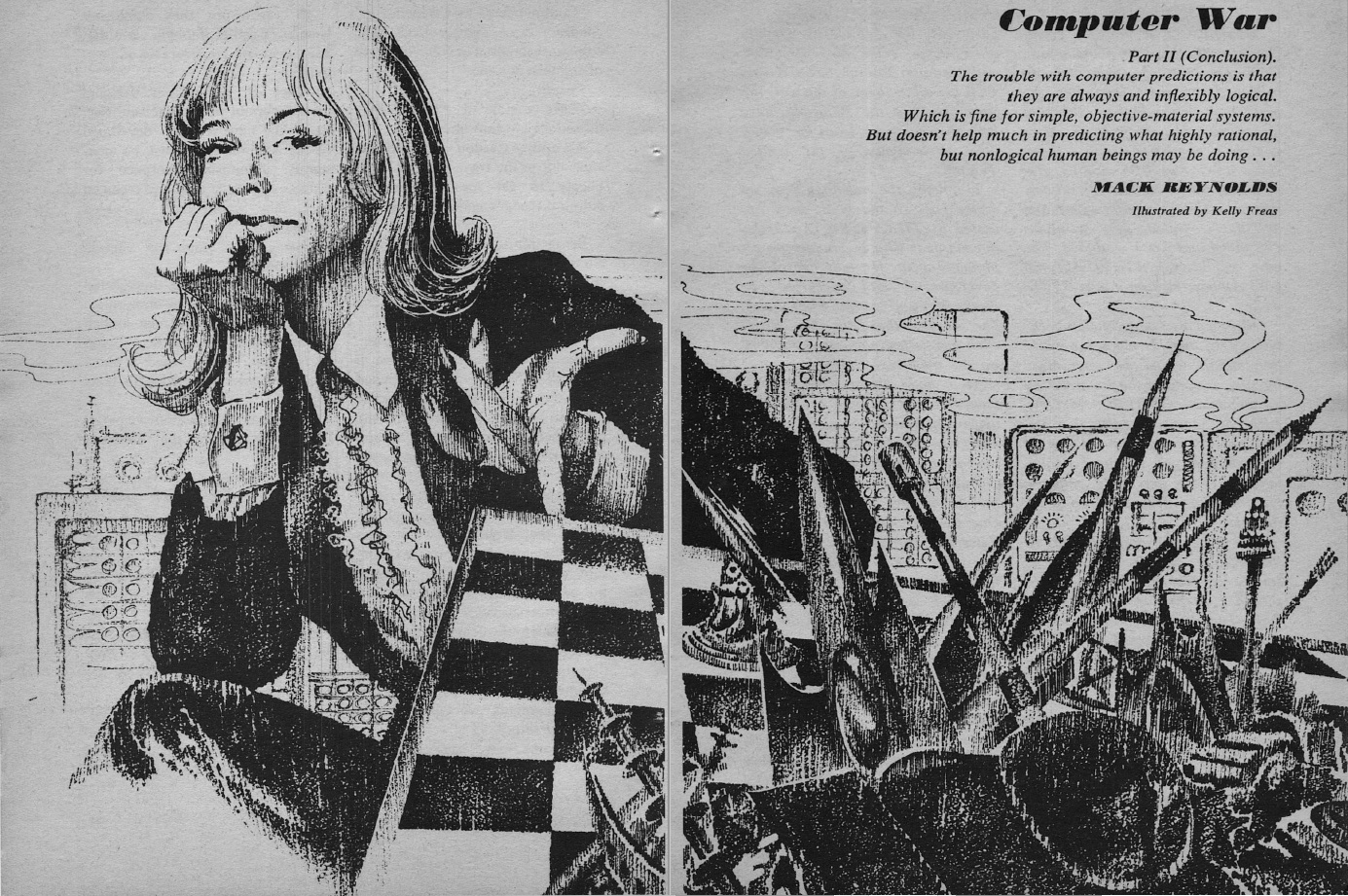


![[May 31, 1967] Phoning it in (June 1967 <i>Analog</i>)](https://galacticjourney.org/wp-content/uploads/2022/05/670531cover-672x372.jpg)
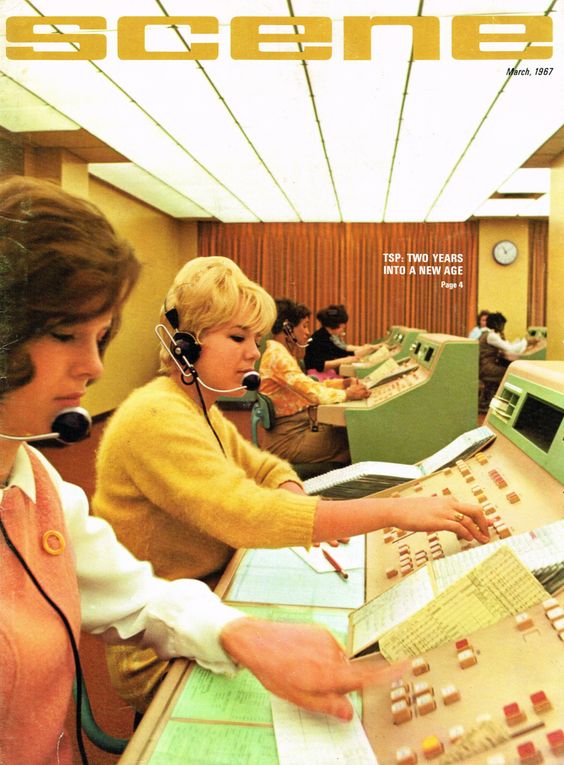
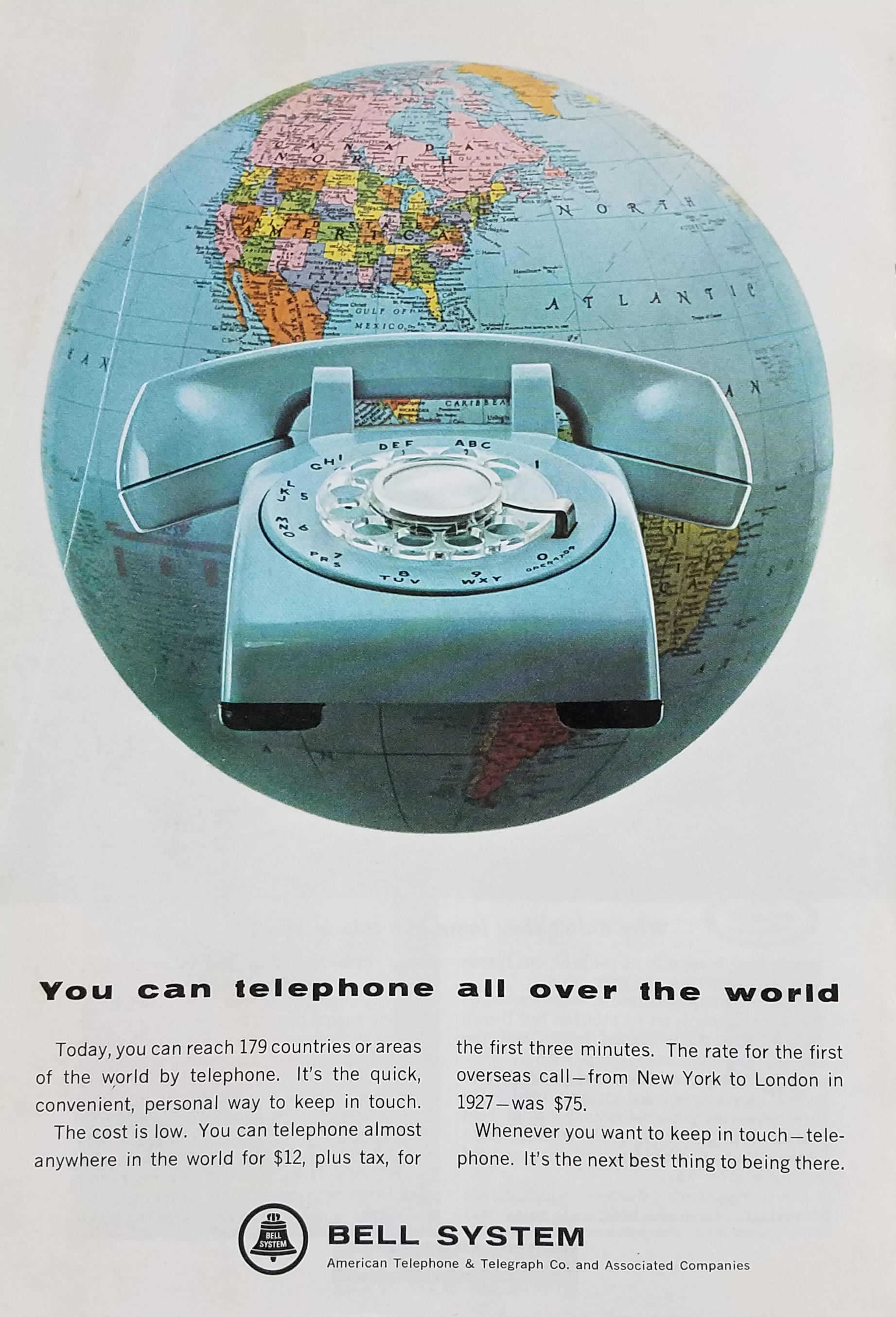
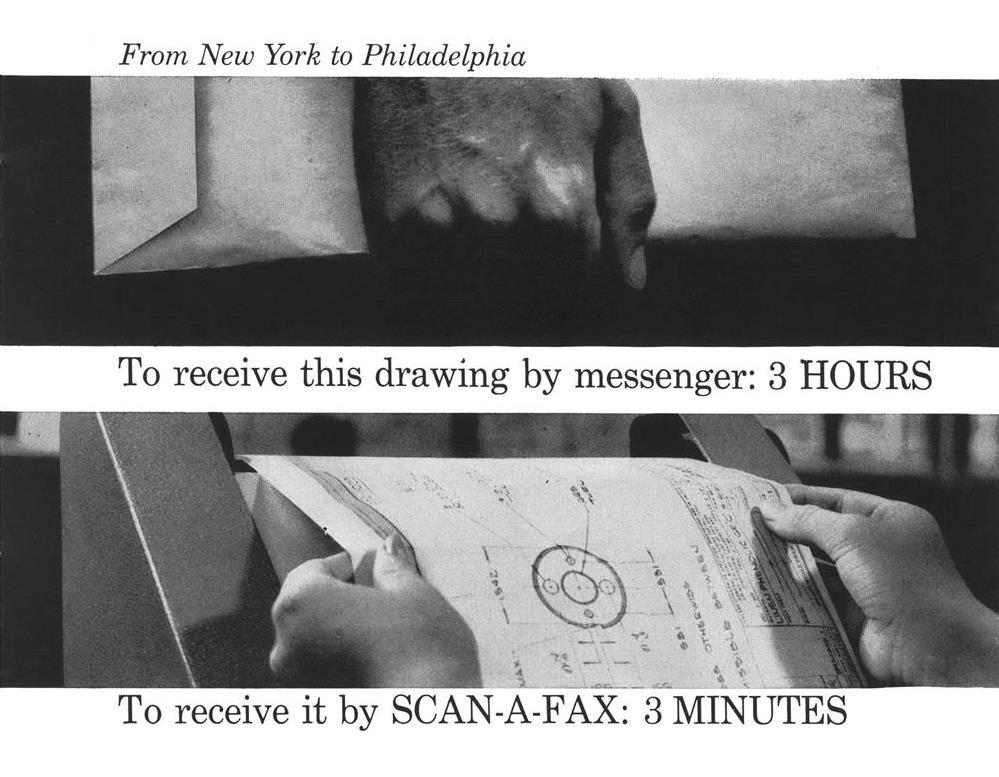






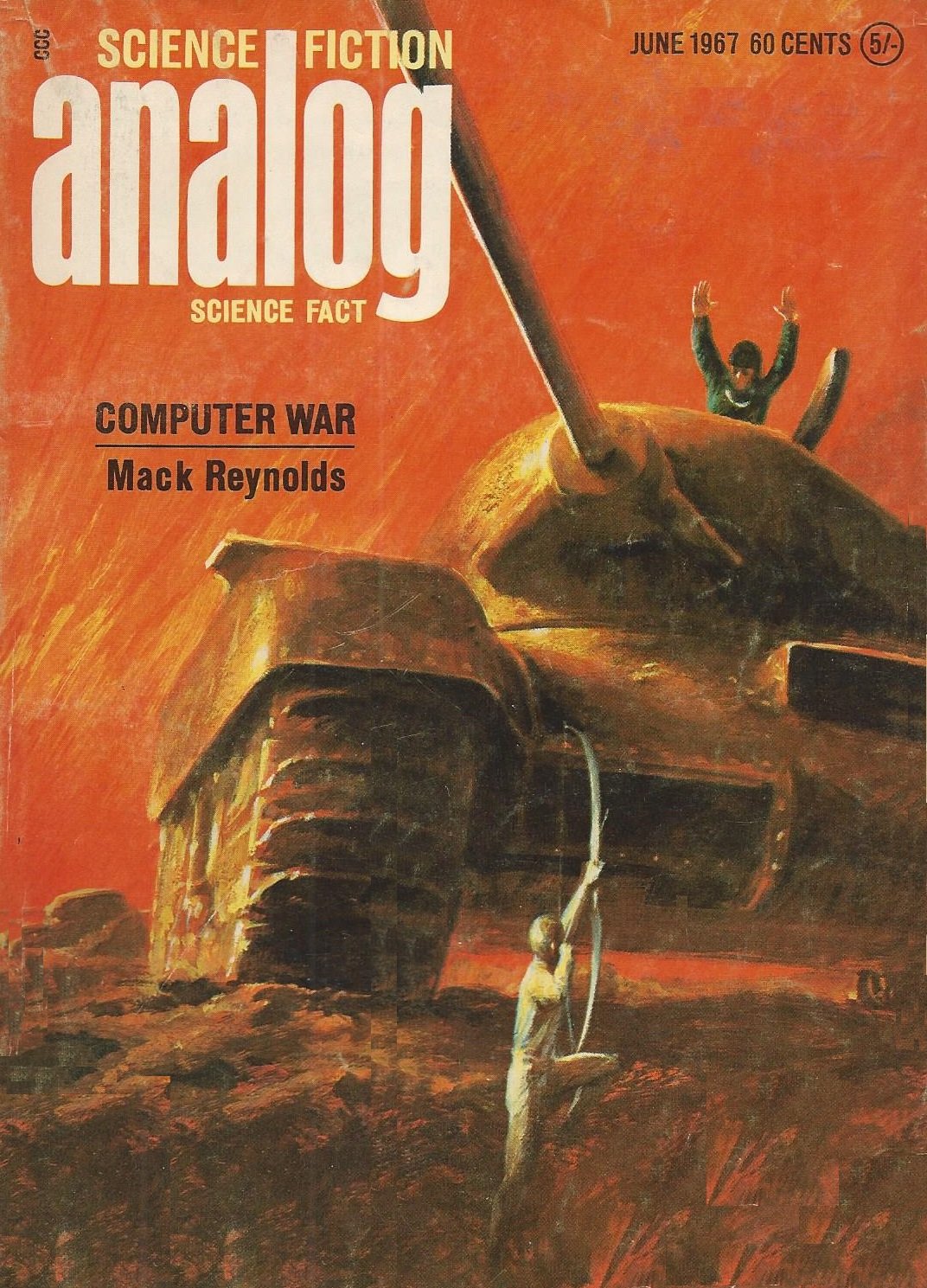

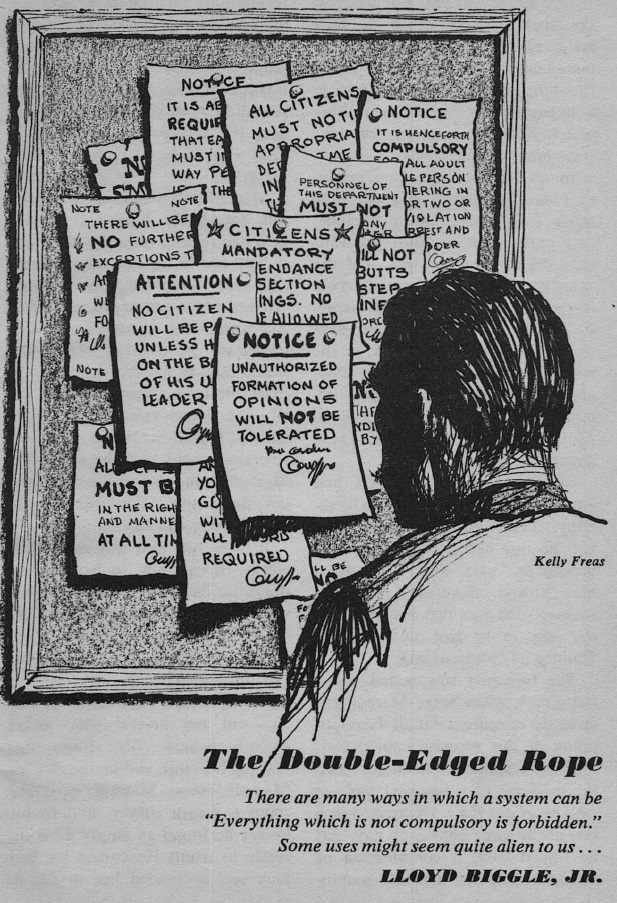

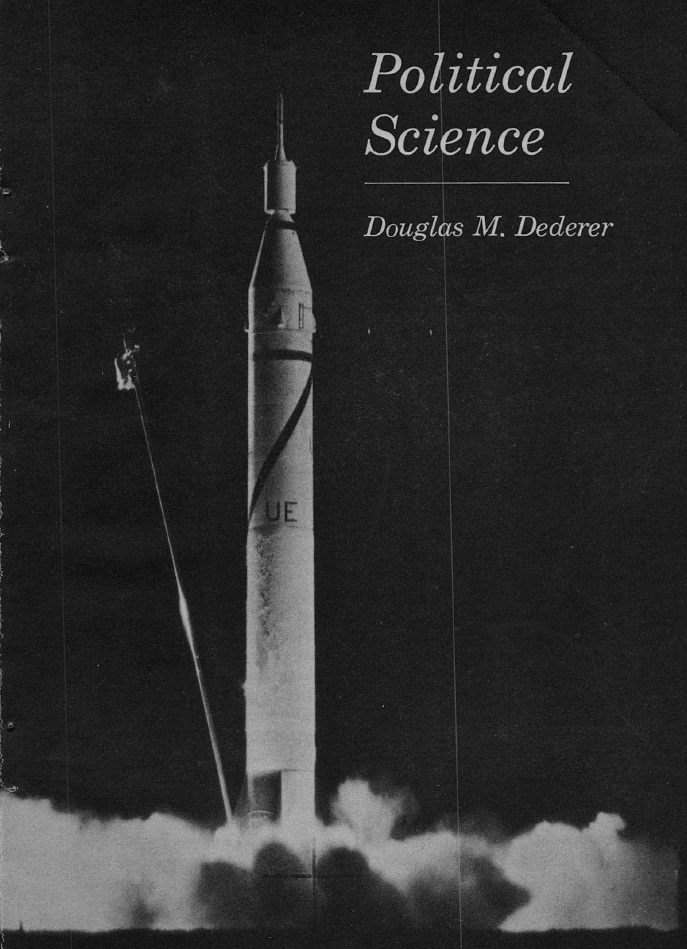
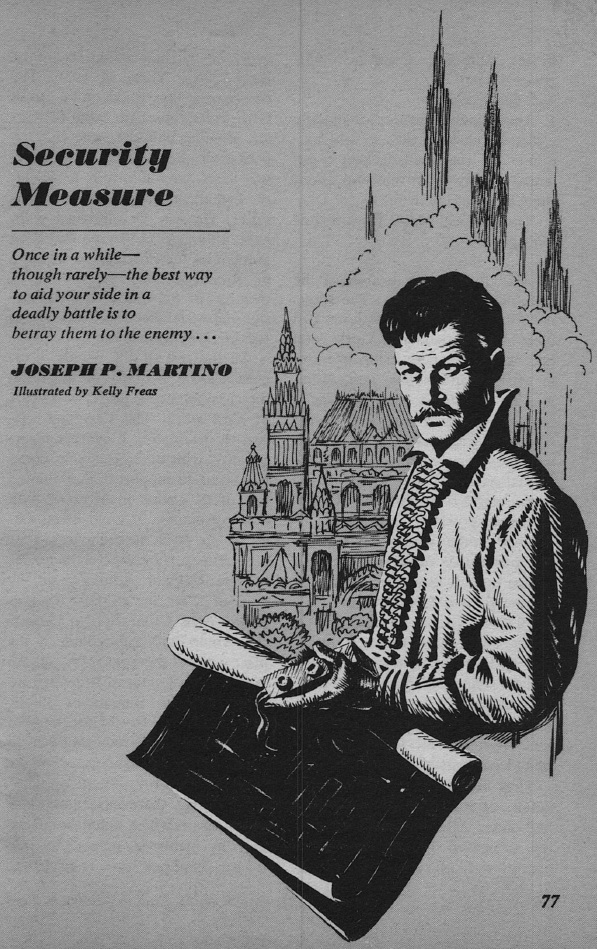

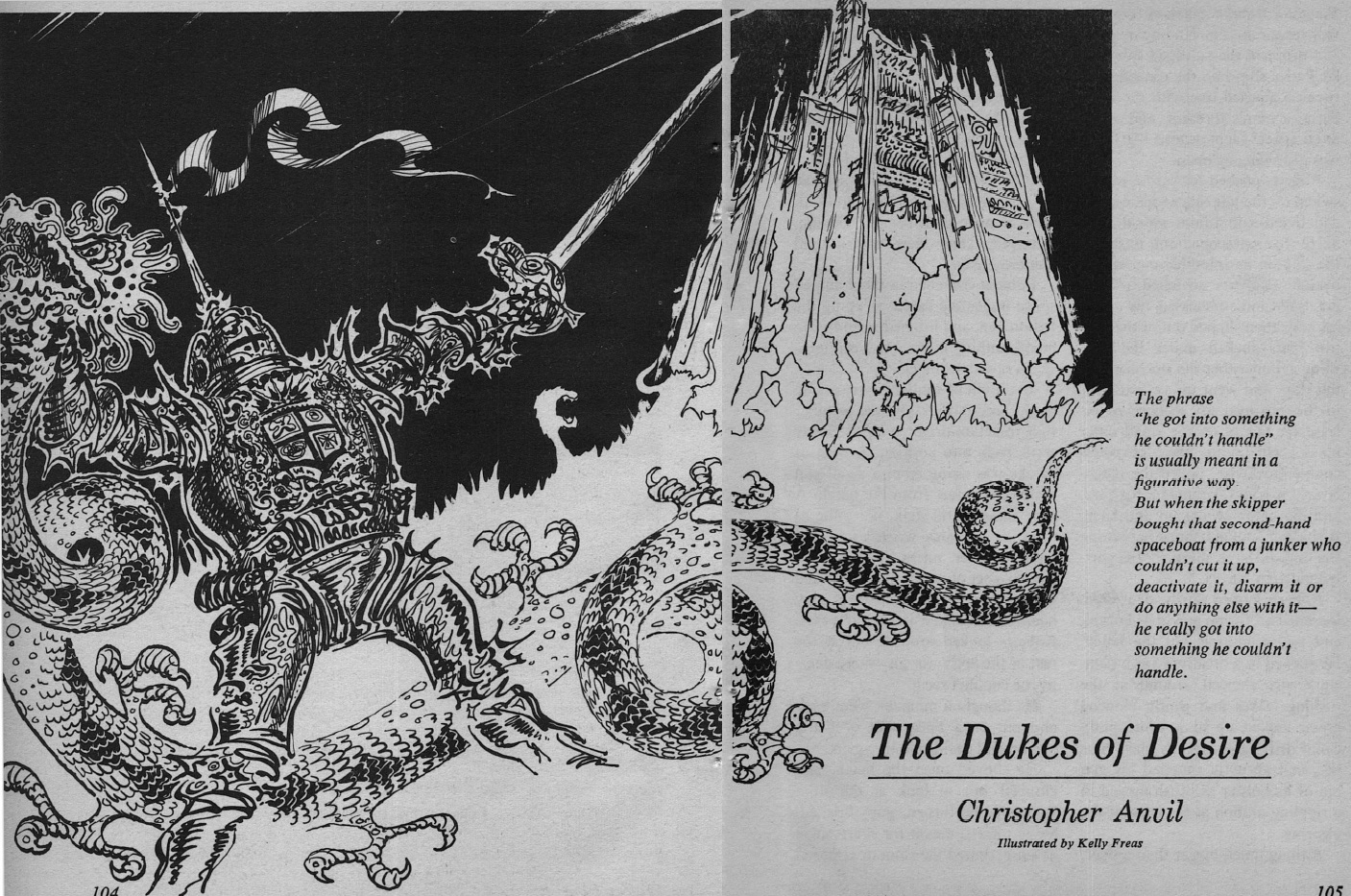

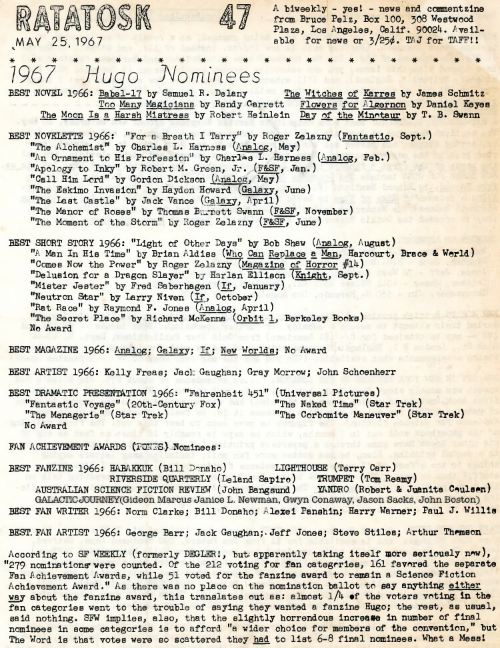

![[April 30, 1967] Strange New Worlds and Staid Old Ones (May 1967 <i>Analog</i>)](https://galacticjourney.org/wp-content/uploads/2022/04/670430cover-672x372.jpg)
